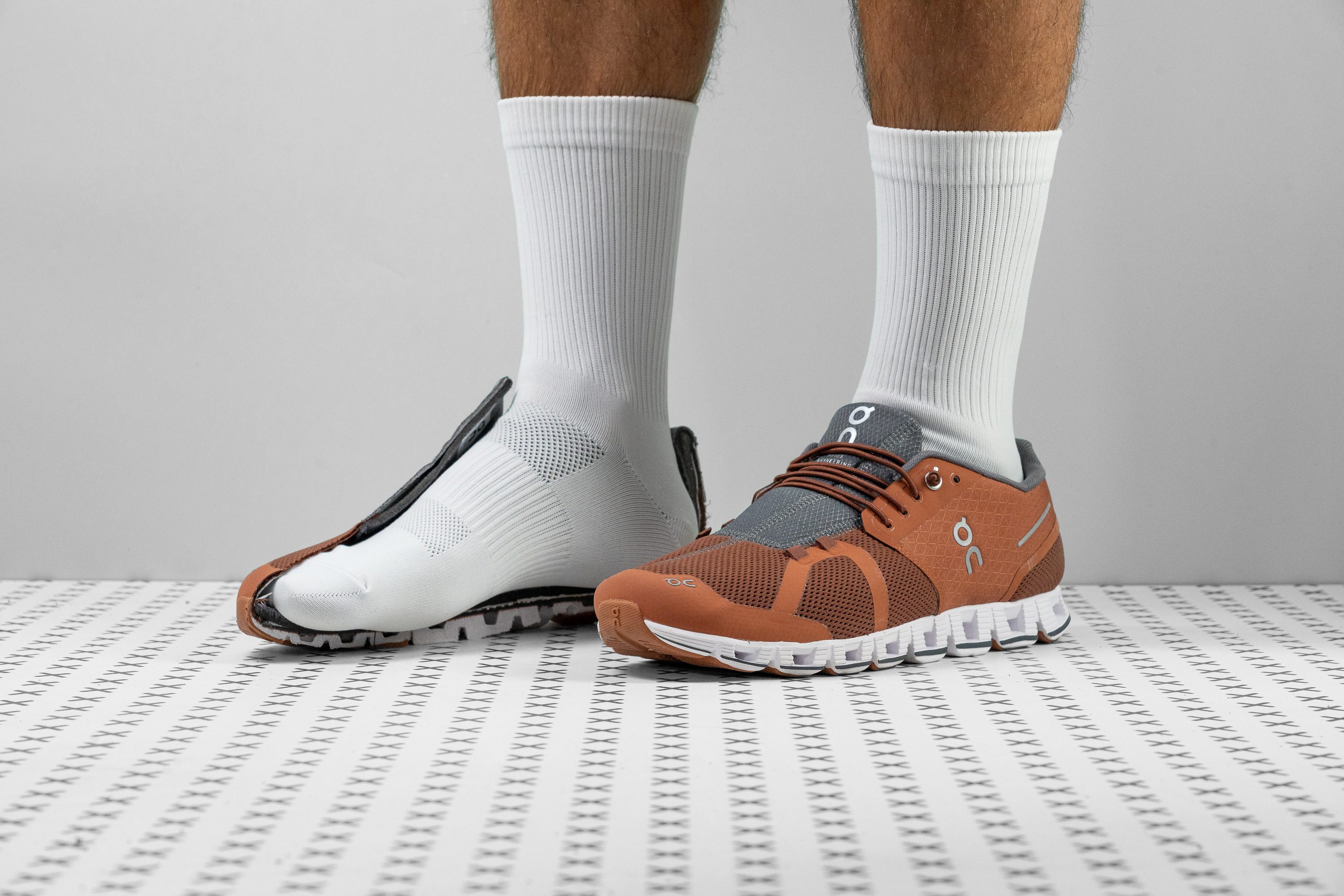Our verdict
Pros
- Comfortable in-shoe feel
- Cushioned for all-day wear
- Super breathable
- Highly flexible
- Durable outsole
- Can do short runs
- Has reflective elements
Cons
- Upper is really flimsy
- Not for wide feet
- Outsole traps stones
Audience verdict
- Top 7% in walking shoes
- Top 10% in On walking shoes
- Top 4% most popular walking shoes
Comparison
The most similar walking shoes compared
+ + Add a shoe | |||||
|---|---|---|---|---|---|
| Audience score | 91 Superb! | 80 Decent! | 88 Good! | 87 Good! | |
| Price | $130 | $150 | $150 | $140 | |
| Arch support | Neutral | Neutral | Neutral | Neutral | |
| Orthotic friendly | ✓ | ✓ | ✓ | ✓ | |
| Weight lab Weight brand | 8.2 oz / 232g 8.1 oz / 230g | 8.7 oz / 247g 9.4 oz / 266g | 8.5 oz / 242g 8.6 oz / 243g | 7.9 oz / 225g 8.4 oz / 238g | |
| Lightweight | ✓ | ✓ | ✓ | ✓ | |
| Breathability | Breathable | Breathable | Breathable | Breathable | |
| Use | TravelFitnessFor nurses | TravelFitnessFor nurses | TravelFor nurses | TravelFitnessFor nurses | |
| Midsole softness | Balanced | Firm | Firm | Balanced | |
| Difference in midsole softness in cold | Normal | Small | Normal | Big | |
| Insole thickness | Average | Thin | Average | Thin | |
| Removable insole | ✓ | ✓ | ✓ | ✓ | |
| Stiffness | Flexible | Flexible | Flexible | Flexible | |
| Difference in stiffness in cold | Big | Big | Big | Big | |
| Torsional rigidity | Flexible | Flexible | Moderate | Flexible | |
| Heel counter stiffness | Moderate | Flexible | Flexible | Flexible | |
| Heel tab | None | None | None | None | |
| Drop lab | 9.0 mm | 9.9 mm | 7.1 mm | 6.9 mm | |
| Heel stack lab | 27.3 mm | 28.7 mm | 28.3 mm | 27.6 mm | |
| Forefoot | 18.3 mm | 18.8 mm | 21.2 mm | 20.7 mm | |
| Toebox width at the widest part | Medium | Medium | Medium | Narrow | |
| Toebox width at the big toe | Medium | Medium | Medium | - | |
| Closure | Bungee lacesLaces | Laces | Bungee lacesSlip-on | Bungee lacesLacesSlip-on | |
| Toebox durability | Bad | Bad | Bad | - | |
| Heel padding durability | Bad | Bad | Bad | - | |
| Outsole durability | Good | Decent | Good | - | |
| Midsole width in the forefoot | Narrow | Narrow | Narrow | Very narrow | |
| Midsole width in the heel | Very narrow | Average | Average | Narrow | |
| Outsole hardness | Hard | Average | Average | Average | |
| Outsole thickness | Average | Average | Average | Average | |
| Tongue padding | Average | Very thin | Average | Thin | |
| Tongue: gusset type | Both sides (full) | None | Both sides (full) | Both sides (full) | |
| Material | Mesh | - | Mesh | Mesh | |
| Ranking | #2 Top 7% | #28 Bottom 3% | #16 Bottom 44% | #20 Bottom 31% | |
| Popularity | #1 Top 4% | #22 Bottom 24% | #26 Bottom 10% | #1 Top 4% |
Who should buy
We think that the On Cloud is a perfect match for people on the lookout for the following:
- an exceptionally lightweight walking shoe (the Cloud is a whole ounce lighter than the average)
- a versatile shoe that can be used for both all-day wear and jogging
- a stylish, sneaker-like silhouette
- a highly breathable pair of hot summers
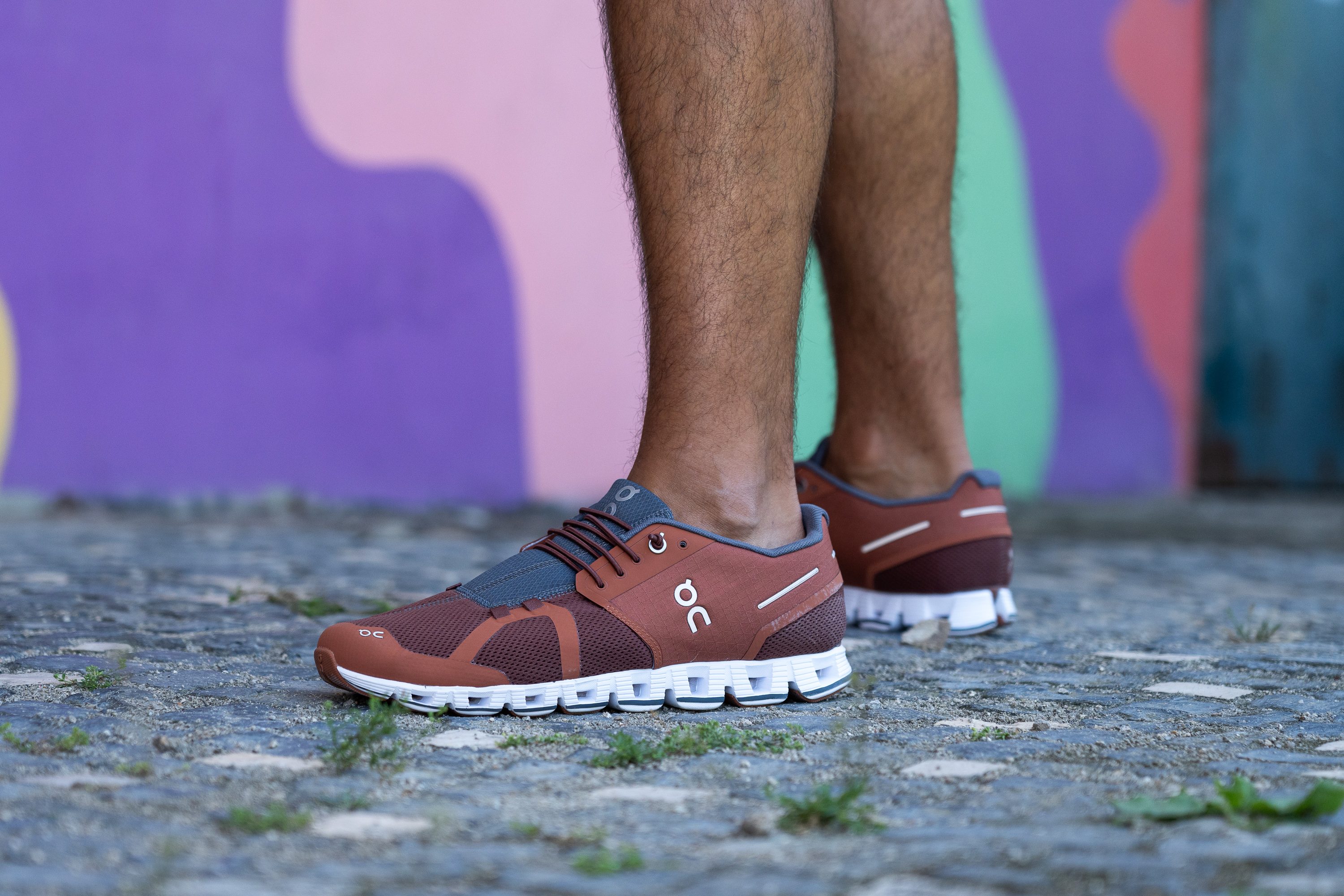
Who should NOT buy
If you expect top-notch durability from "Swiss Engineering," stay away from the On Cloud. Its upper is unforgivably flimsy and tears easily. Consider the On Cloudaway instead.
We also found that the shoe fits slightly on the narrow side, making it unsuitable for wide feet. Even the brand itself recommends going half a size up in the shoe. Alternatively, we suggest trying the Allbirds Tree Runners.
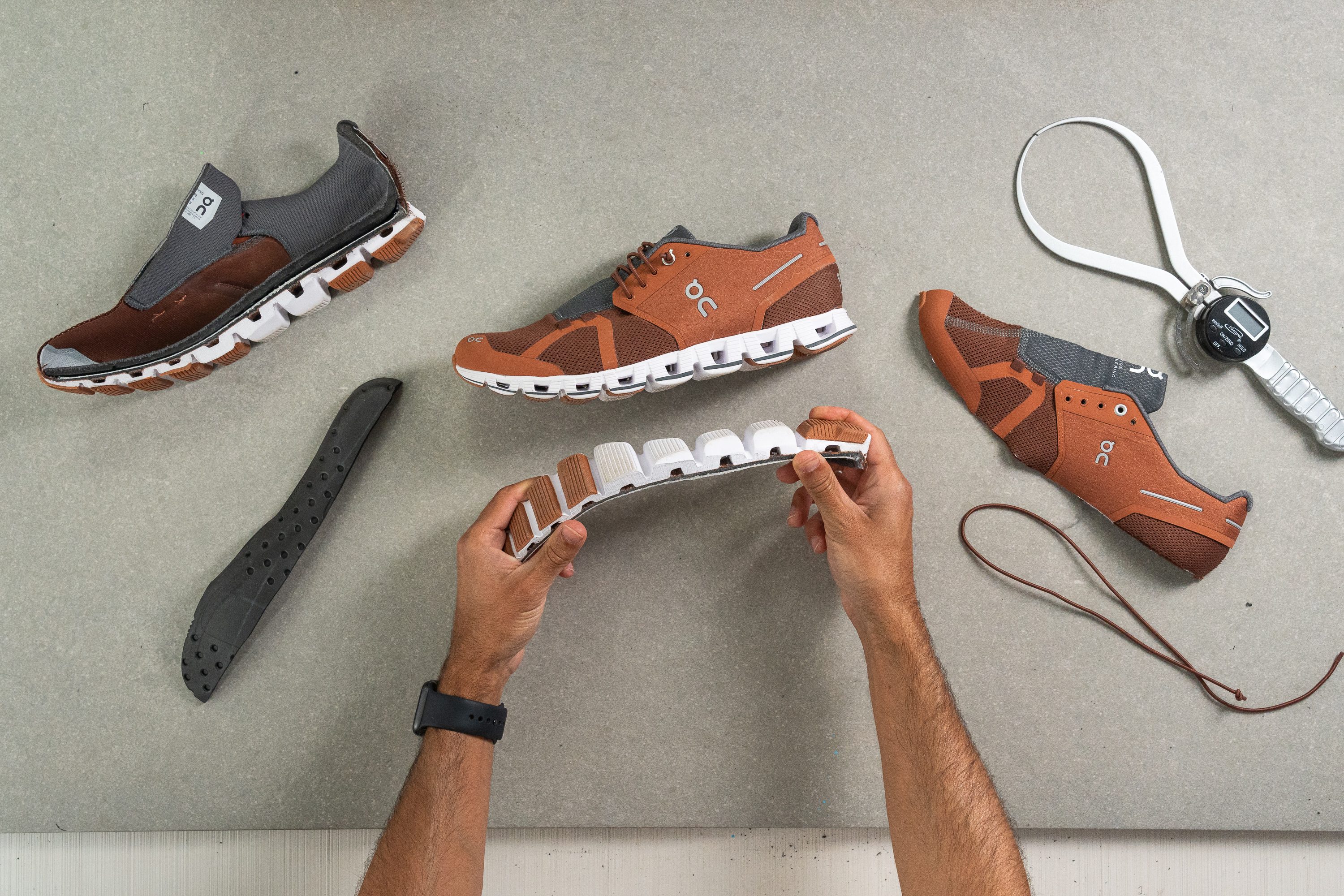
Breathability
The On Cloud is unbelievably breathable!
It is one of the most well-ventilated walking shoes we've seen in our lab. Just look how effortlessly the smoke is passing through its thin mesh upper in our lab test below. The shoe gets a perfect 5 out of 5 for breathability. It is our instant top pick for summertime.
Look at those large mesh pores! It's practically a fishing net.
Looking at the upper up close through our microscope, the number of ventilation holes per square centimeter is pretty significant.
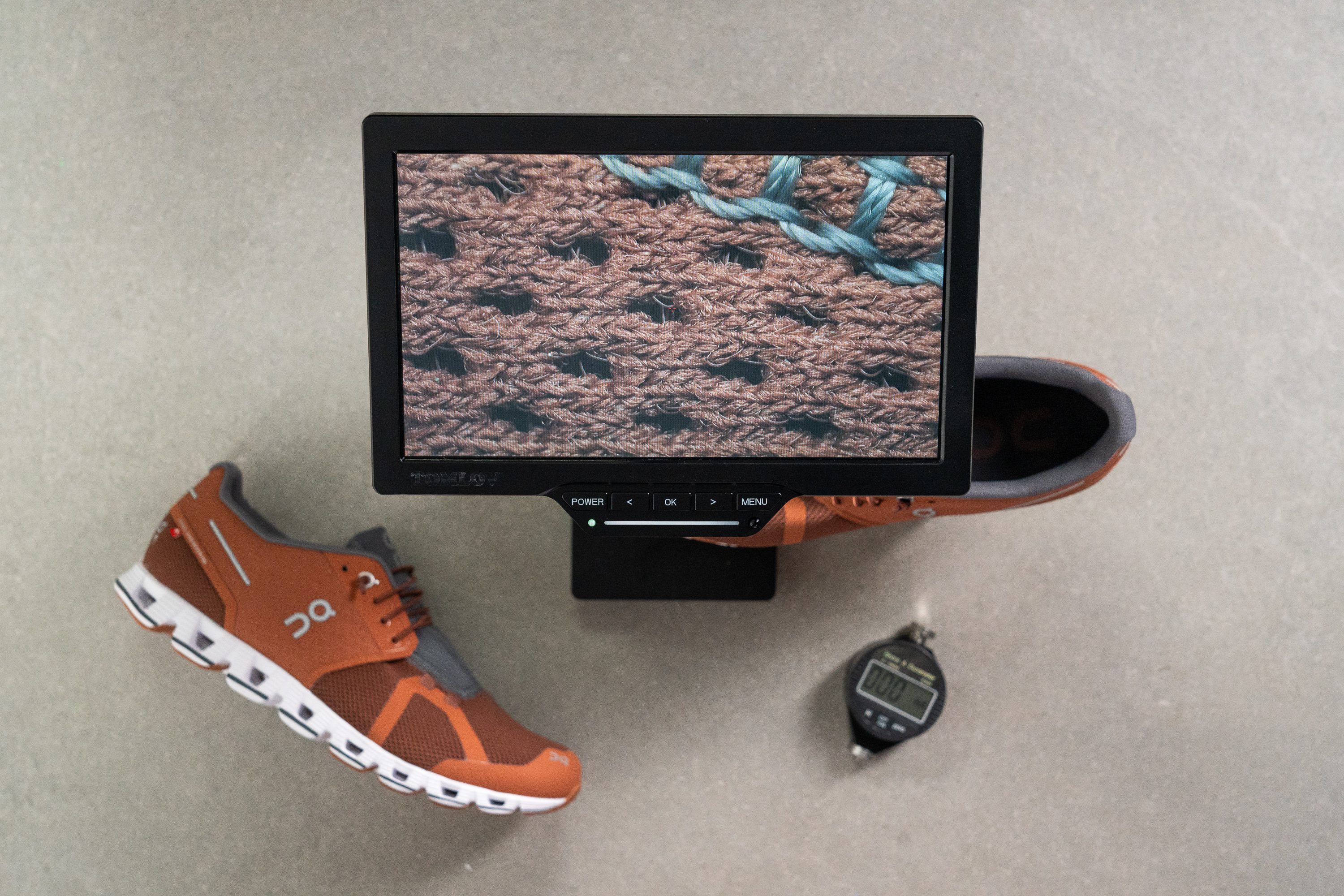
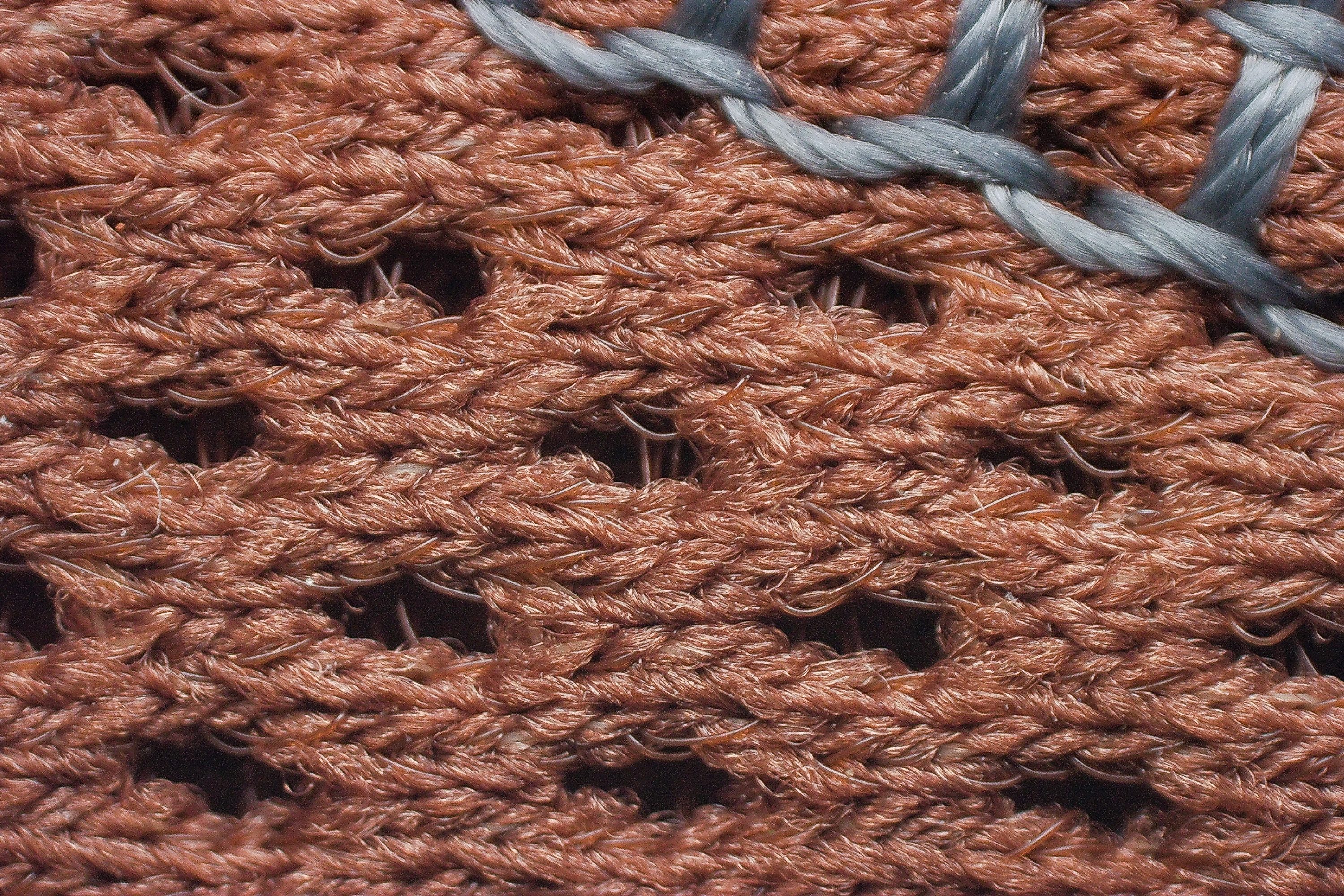
| Cloud | 5 |
| Average | 2.7 |
Durability
Toebox durability
As much as we had enjoyed the ventilation capacity of the Cloud, our Dremel test literally destroyed our high hopes for the shoe.
The mesh material covering a large portion of the upper including the toebox was torn the very moment we touched it with the tool. We apply the same force (3.2N) and speed (10K PRM) for 12 seconds to all our shoes in the lab but there is at least a few seconds of resistance.
But not in the case of the Cloud. It only gets 1 out of 5 for durability from us.
The shoe's synthetic overlays are too thin and weak to prevent wear and tear. Avoid brushing the shoe against concrete blocks, stones, or other abrasive surfaces.
For reference, here is how the Hoka Transport shoe held up to the same Dremel test.
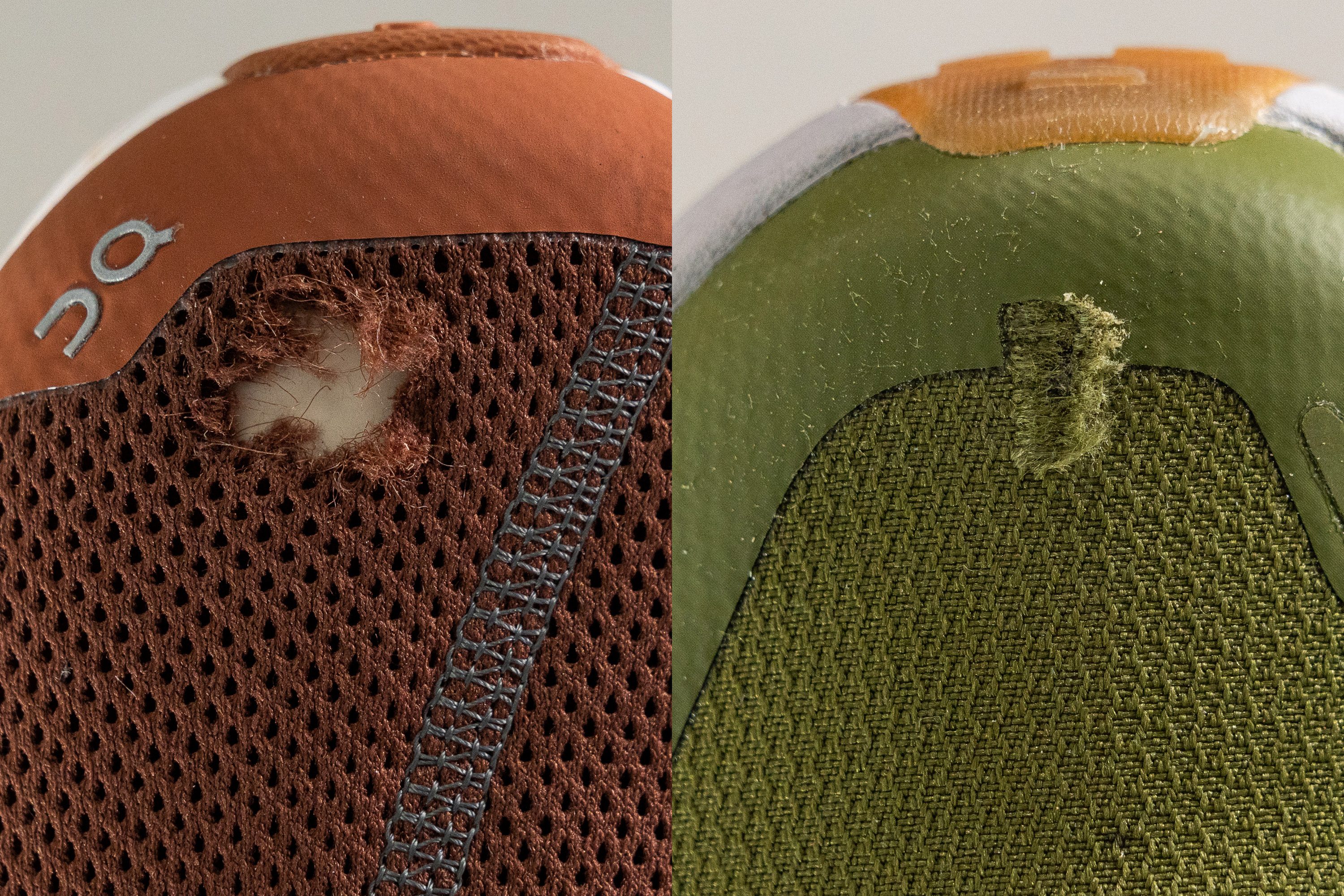
| Cloud | 1 |
| Average | 3.2 |
Heel padding durability
Unfortunately, we observed the same flimsy material on the shoe's heel collar.
Scuffed immediately by the Dremel, this part of the shoe also received 1 out of 5 in our durability test.
| Cloud | 1 |
| Average | 2.3 |
Outsole hardness
On the bright side, the outsole was a nice surprise.
Pressing a durometer against the rubber, we found that at 87 HC, it is harder than 85% of our lab-tested walking shoes.
This is indeed impressive because we see this kind of rubber hardness in hiking shoes! In our experience, it takes much longer to wear out a hard rubber compound.
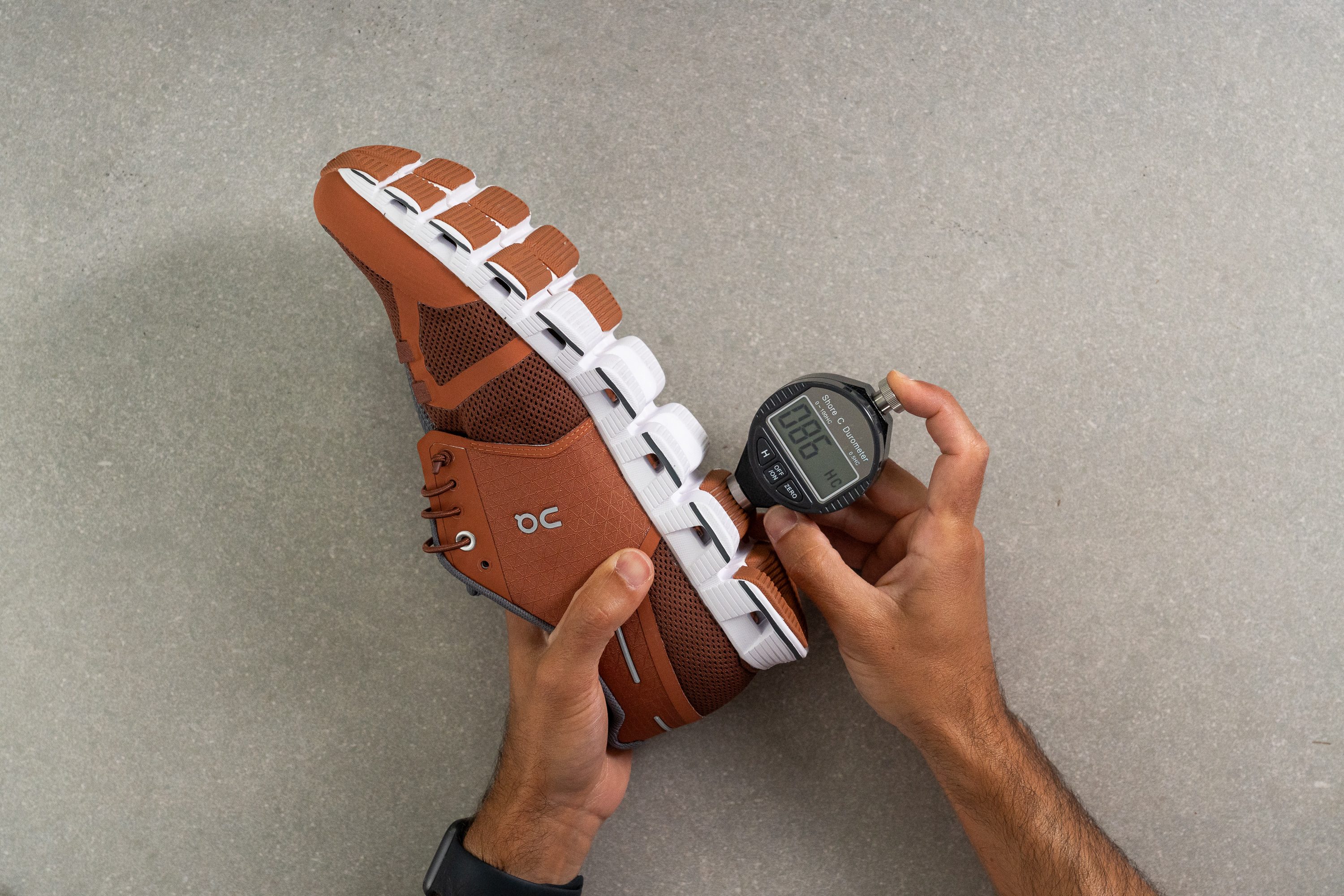
| Cloud | 87.0 HC |
| Average | 76.3 HC |
Outsole durability
Of course, we had to drill the outsole with a Dremel too!
And that's where the Cloud's toughness is all hidden. We applied the tool to the rubberized part of one of the pods in the heel and were simply amazed at its wear resistance.
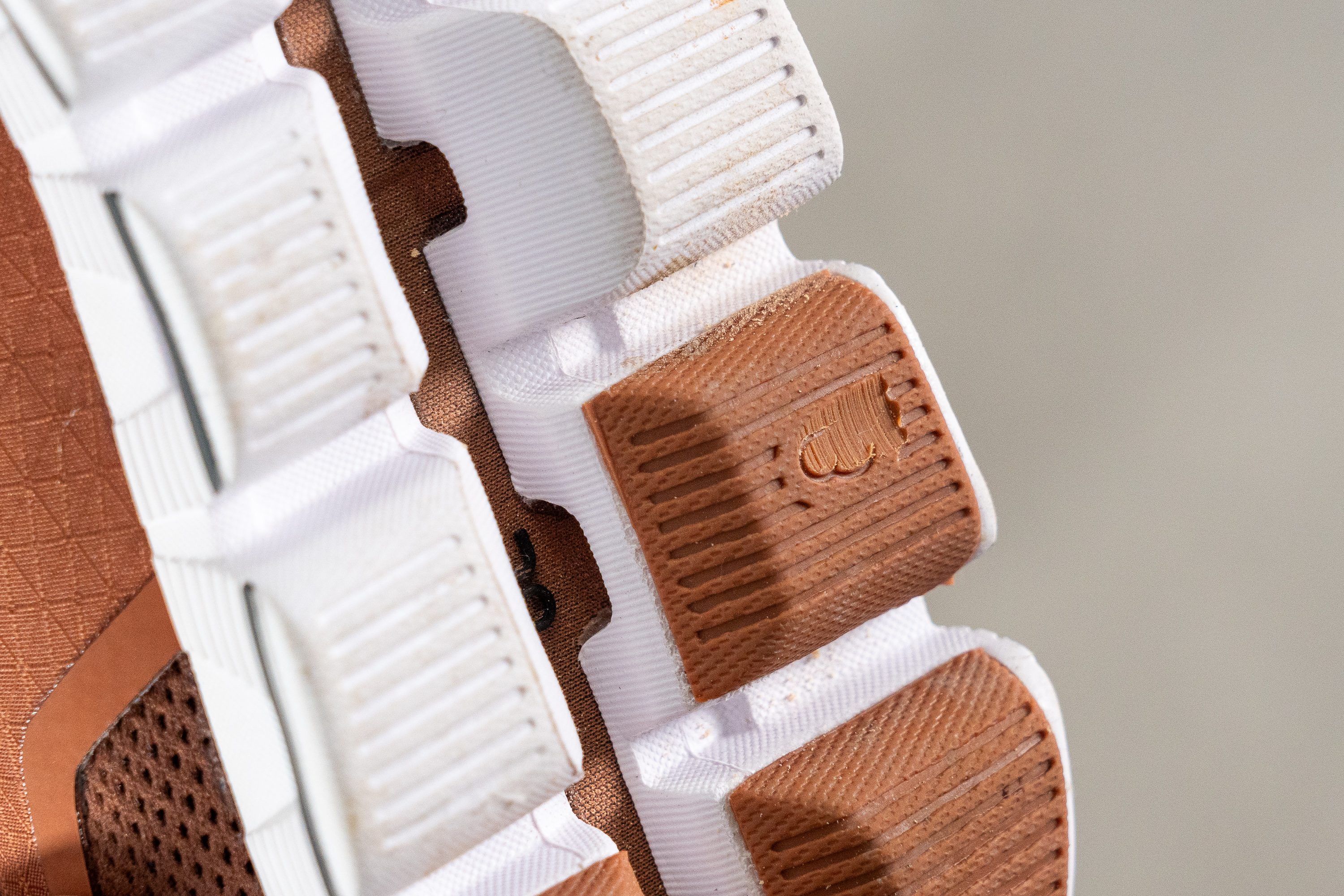
Using a tread gauge, we measured the dent left by the Dremel. It is only 0.68 mm deep! Meanwhile, the average damage caused to our walking shoes by the same test is 0.9 mm deep.
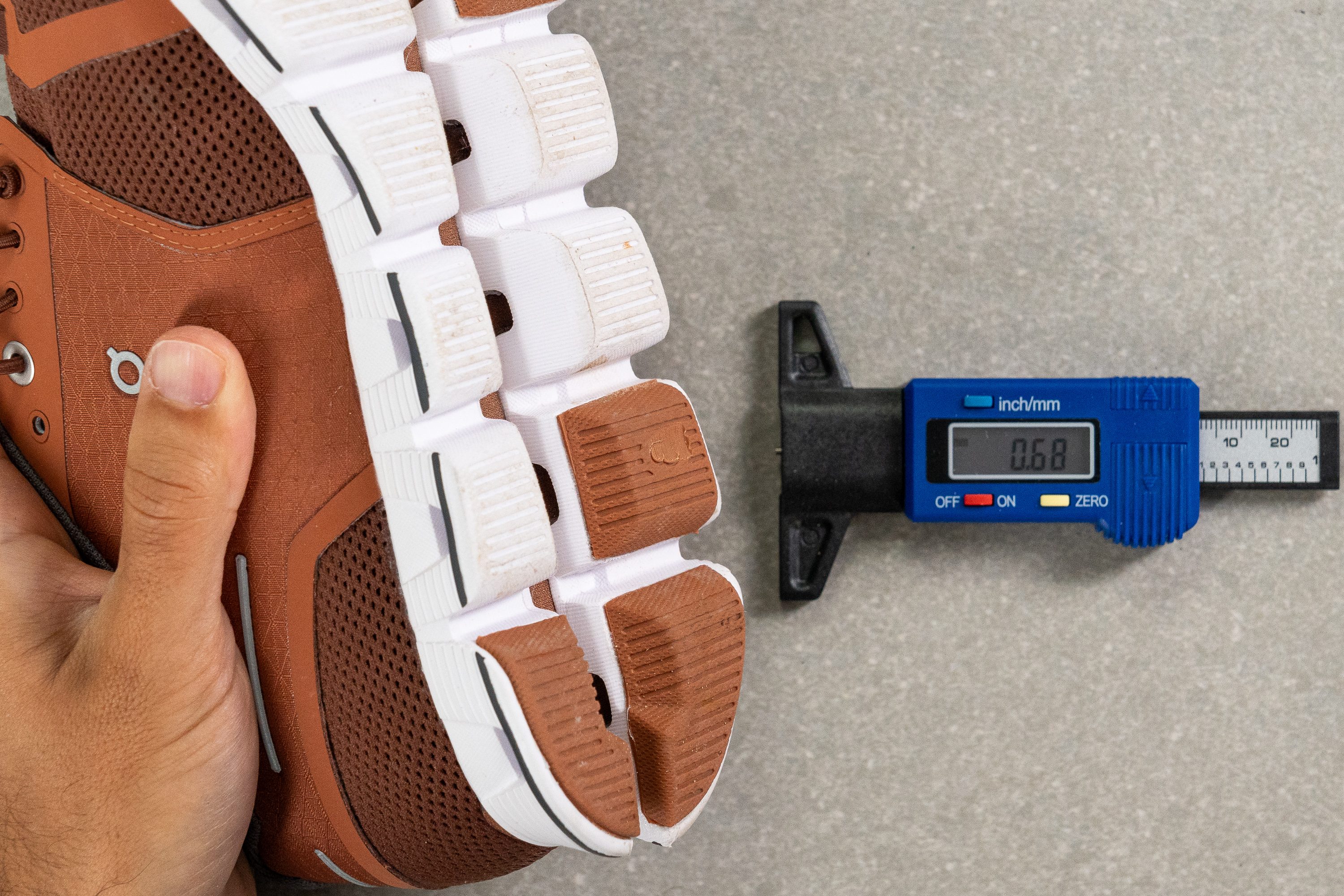
| Cloud | 0.7 mm |
| Average | 1.5 mm |
Outsole thickness
Finally, we had to measure the thickness of these rubber pods to assess how much life there is in the outsole.
Our caliper shows that the rubber is 3.8 mm thick, which is notably thicker than the average. Another bonus point goes out to the Cloud.
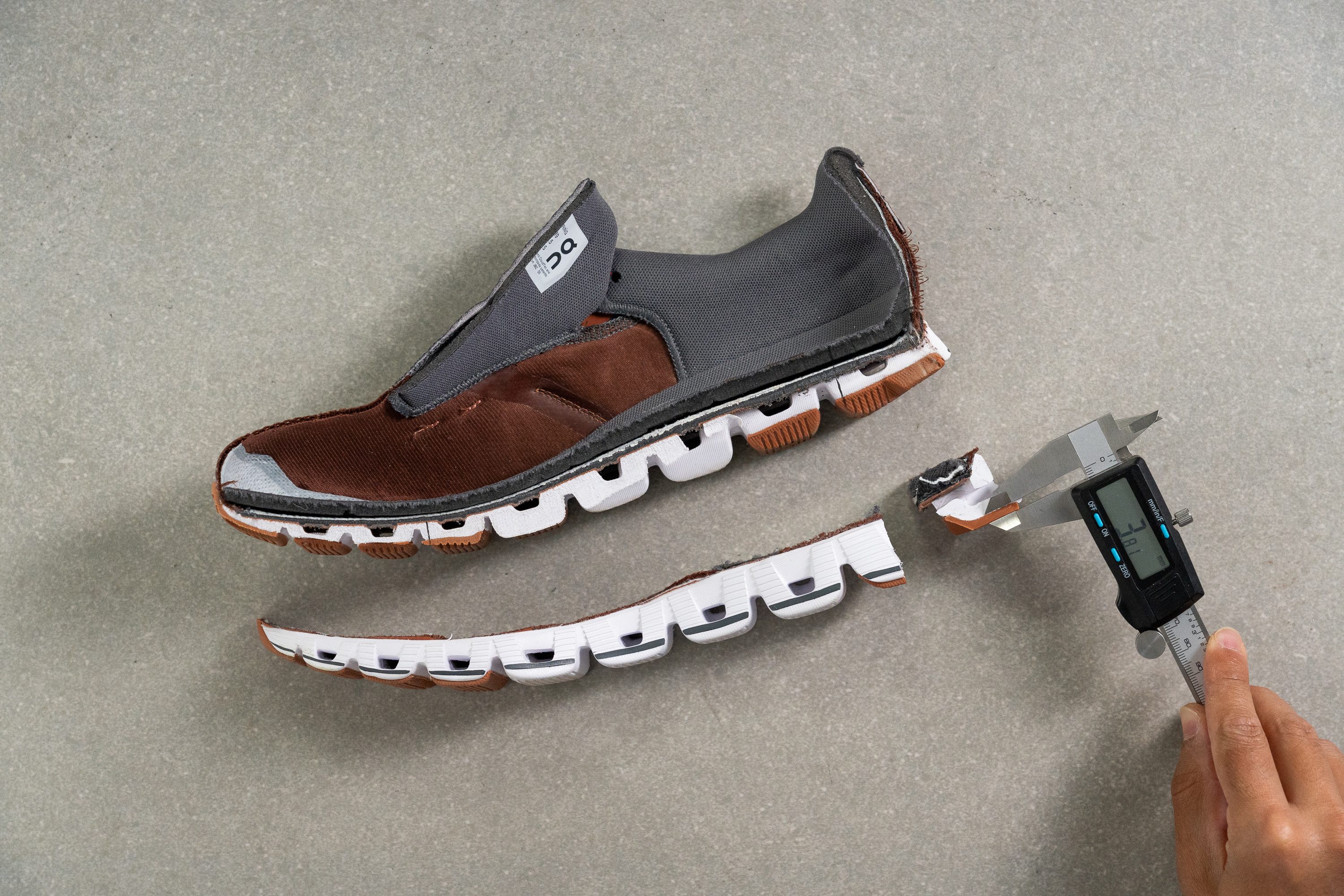
The only downside is that not all of the pods are covered in rubber. Only the most high-impact locations are protected: 5 pods in the forefoot and 3 in the heel.
To sum it all up, we expect at least 400 miles of service from the On Cloud's outsole. We would give it an even longer life expectancy if it had a full-length outsole.
| Cloud | 3.8 mm |
| Average | 2.8 mm |
Weight
This original On Cloud shoe has made it into our top lightest picks multiple times!
Weighing the shoe on our scales, we got 8.2 oz (232g) in a men's US 9. It is exactly the same weight that's stated on the brand's website.
That way, the Cloud is among the lightest walking shoes on our list. It is about 1 oz (30g) lighter than the average. And comparing it to other walking shoes from On, it is only second to its newer version, the Cloud 5 (7.9 oz/225g).
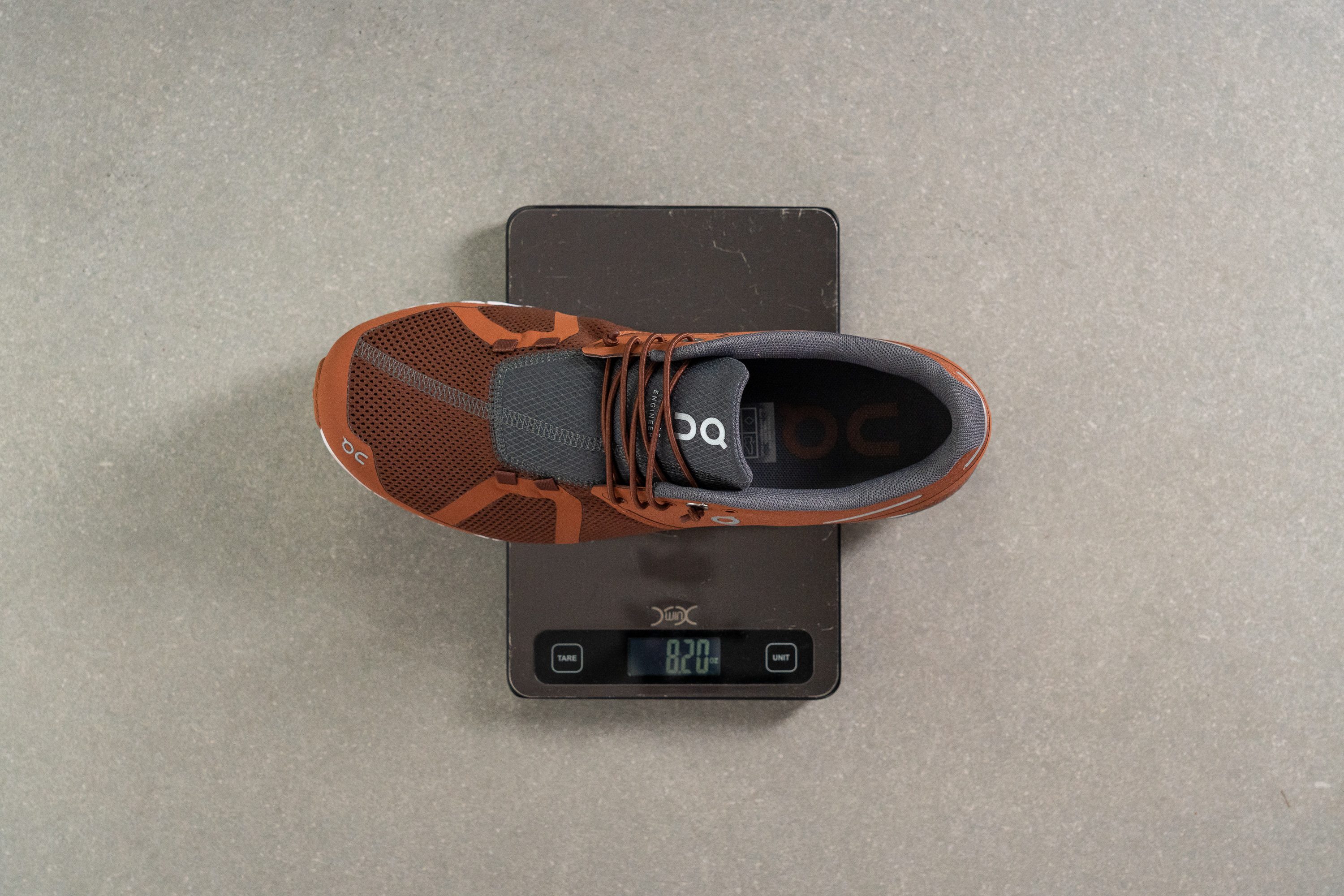
| Cloud | 8.18 oz (232g) |
| Average | 9.77 oz (277g) |
Cushioning
Heel stack
The On brand states that the Cloud was supposed to be their "lightest fully cushioned" shoe and that its heel stack is 24 mm tall.
Using a caliper to check it ourselves, we found that the heel is a little bit more elevated - at 27.3 mm.
Even though it is about 3 mm thinner than the average, we found it to be cushioned enough for extended periods of walking.
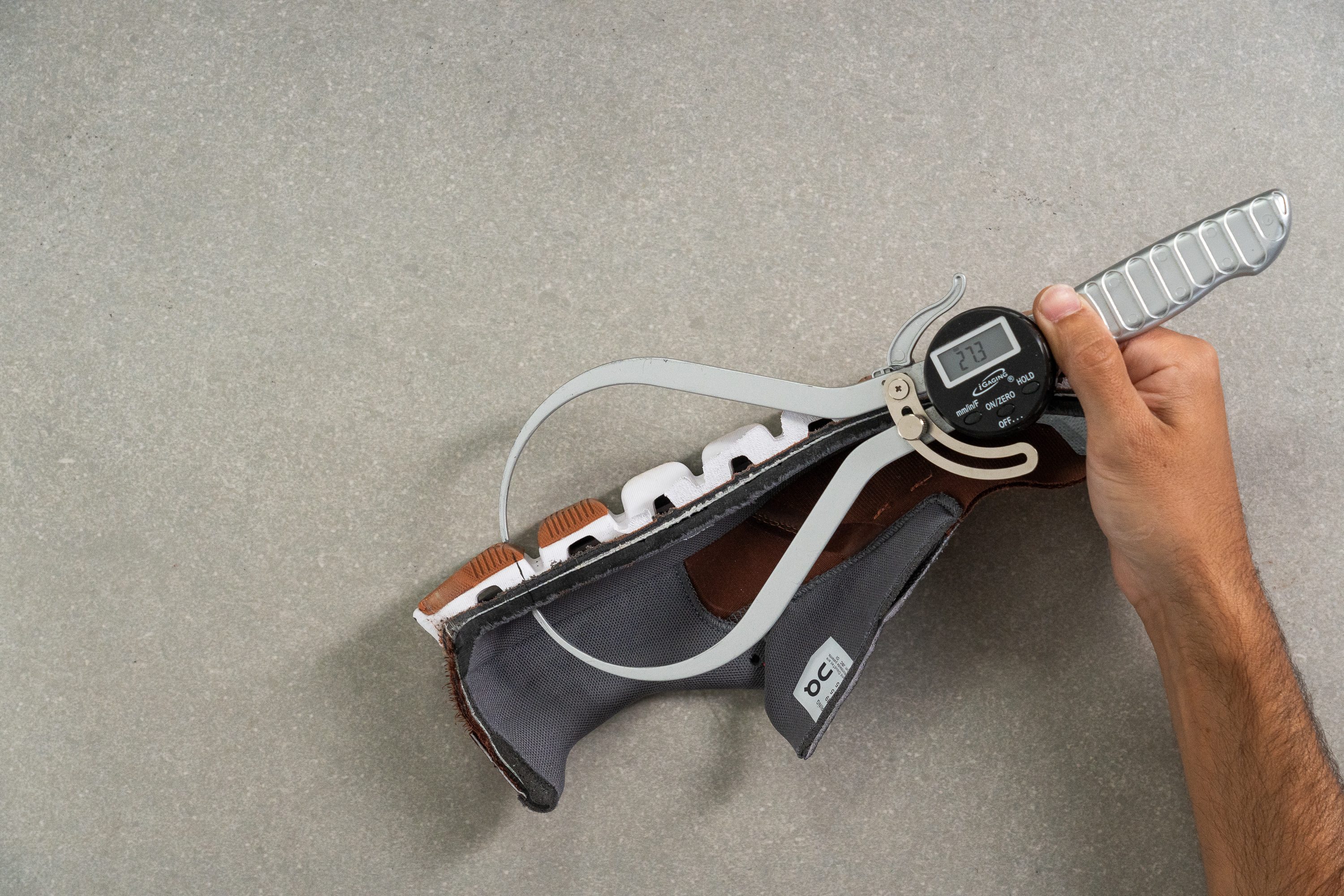
| Cloud | 27.3 mm |
| Average | 32.3 mm |
Forefoot stack
In the forefoot, our measured stack height showed 18.3 mm. This corresponds to On's officially stated 18 mm.
Again, 2 mm thinner than average but not enough to make it feel unsupportive.
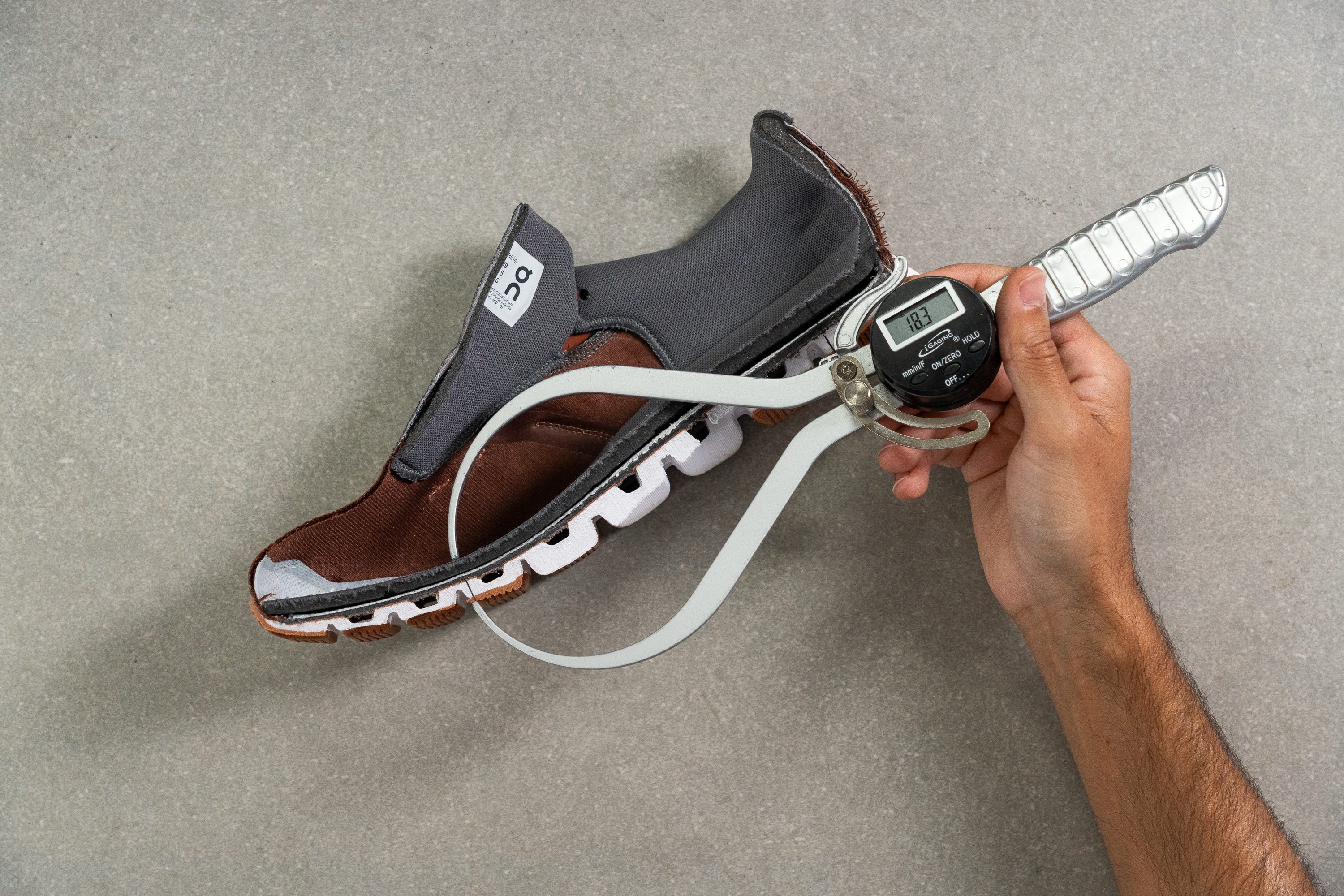
| Cloud | 18.3 mm |
| Average | 21.9 mm |
Drop
Because of the more elevated heel, we calculated that the heel-to-toe drop of the On Cloud is 9 mm. This is notably higher than the stated 6 mm.
And even though the difference may not be obvious to 95% of the wearers, we would still expect the brand to be more accurate with such measurements.
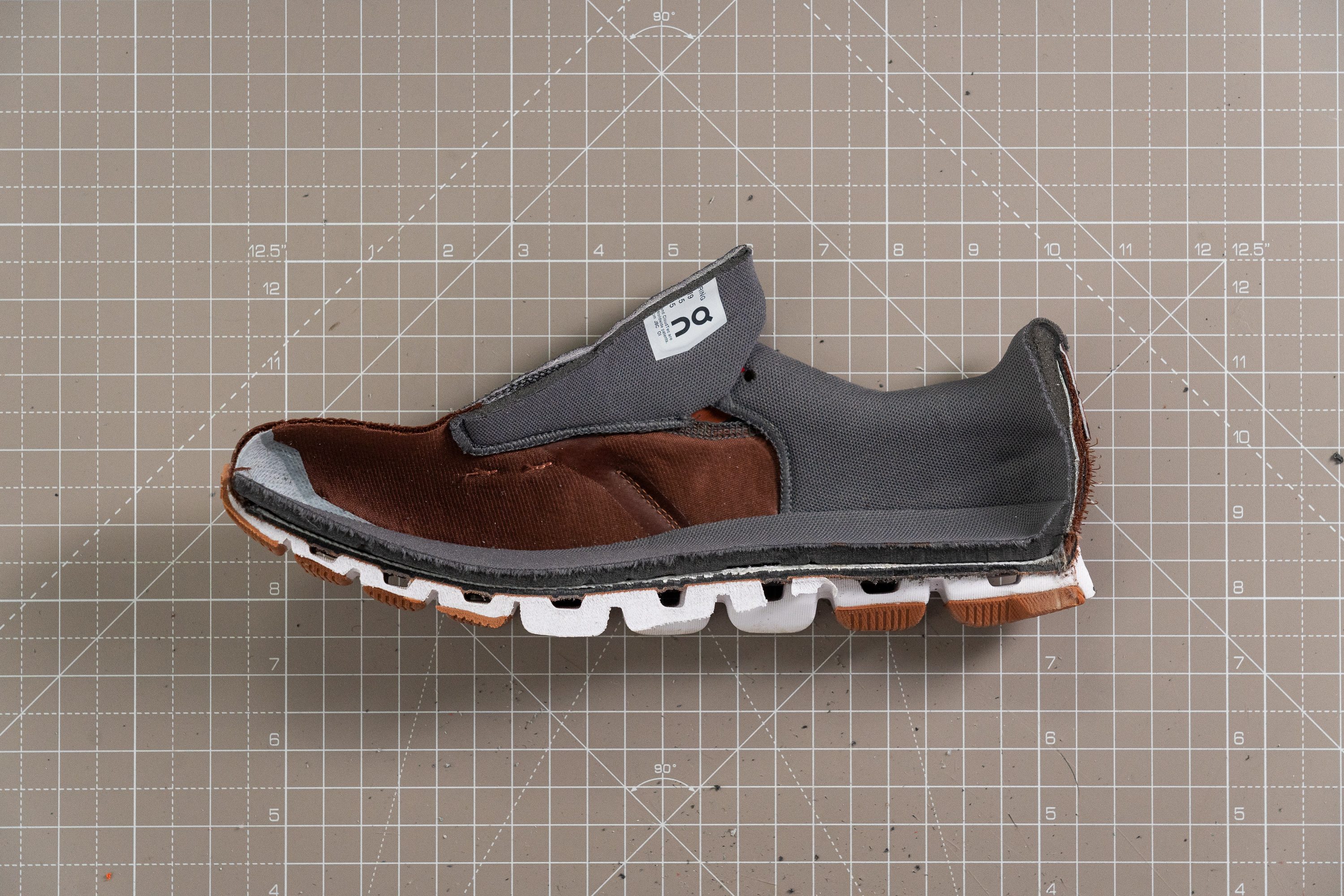
| Cloud | 9.0 mm |
| Average | 10.4 mm |
Midsole softness
Walking and running in the Cloud felt very unique to us. The landings were firm yet cushioned thanks to the higher CloudTec pods in the heel.
When pressing our durometer against the pods, we got a reading of 28.5 HA.
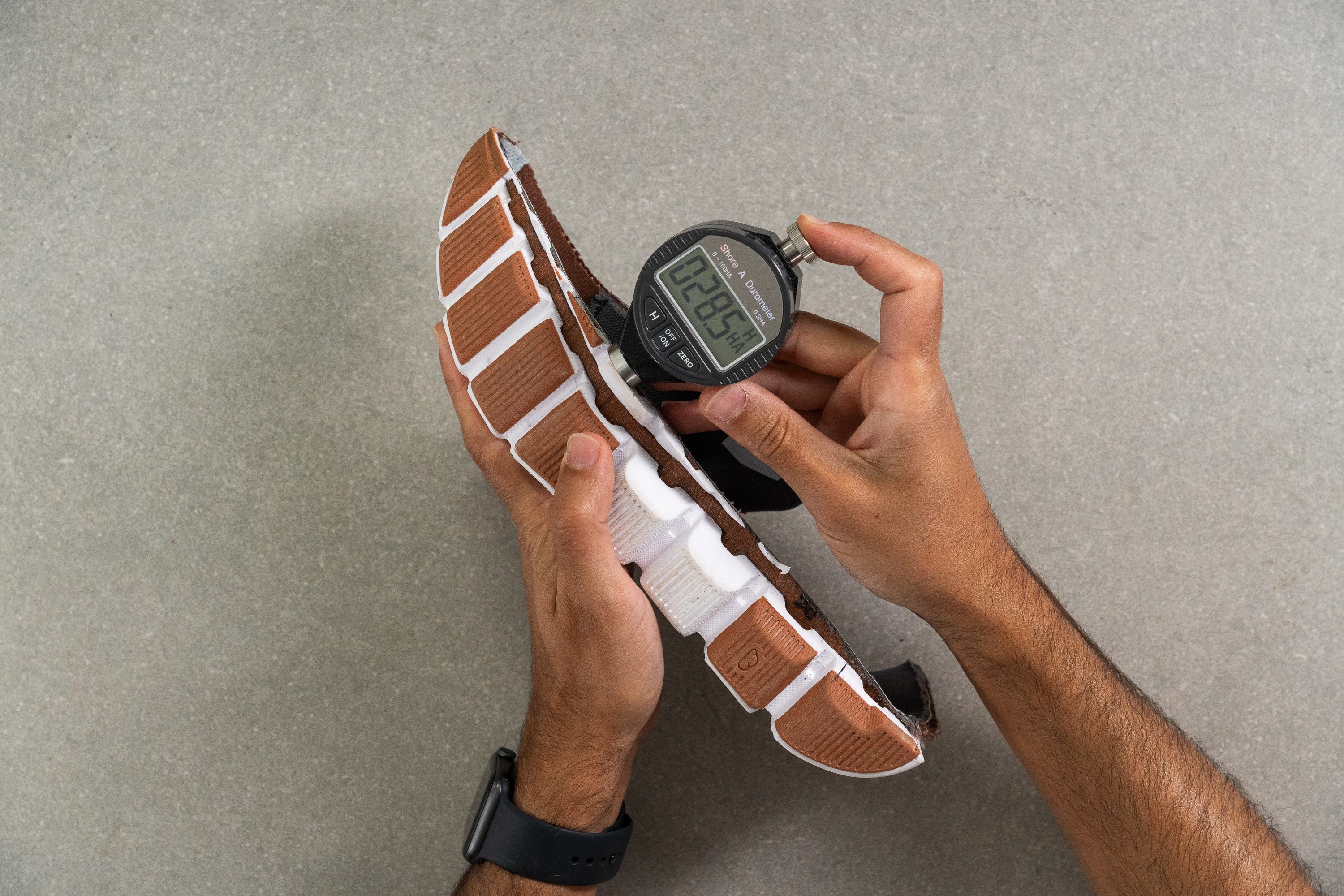
On our spectrum of lab-tested shoes, this is neither too soft nor firm. Balanced is the best way to describe this type of cushioning.
| Cloud | 28.5 HA |
| Average | 24.6 HA |
Difference in midsole softness in cold
Do take into account that the On Cloud gets firm in low temperatures.
After keeping our shoe in the freezer, we repeated the durometer measurement and found that the reading changed to 38.5 HA. This is about as firm as many other walking shoes get after the same test.
The cushioning of the On Cloud firmed up by 35%, which is exactly the same difference as we have observed in other walking shoes.
Considering the shoe's supreme breathability, we think that the Cloud is not the right shoe for colder months.
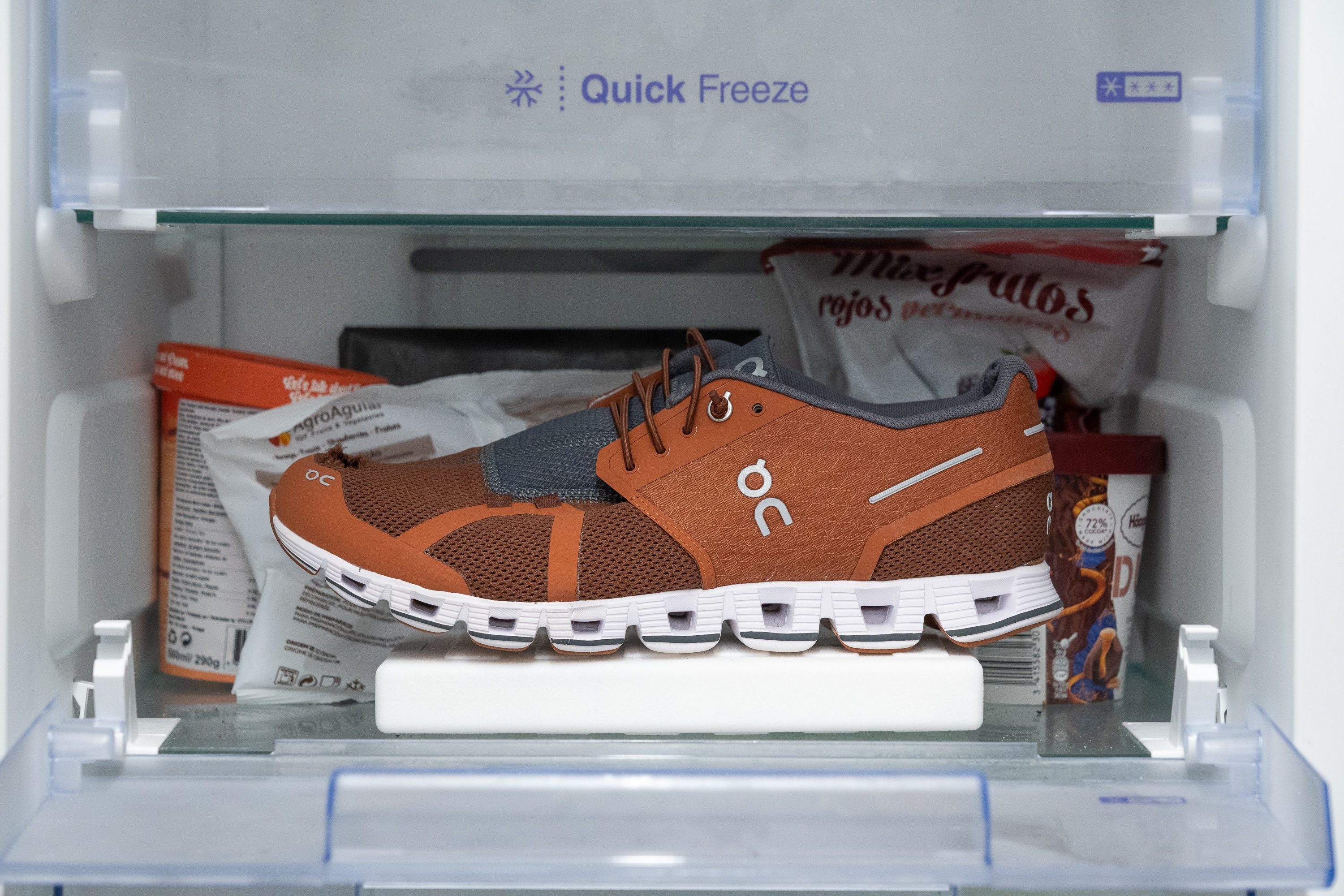
| Cloud | 35.1% |
| Average | 33.6% |
Insole thickness
Contributing to the shoe's cushioning is its generously padded insole. We measured its thickness at 6.2 mm, which is more than 1 mm thicker than average.
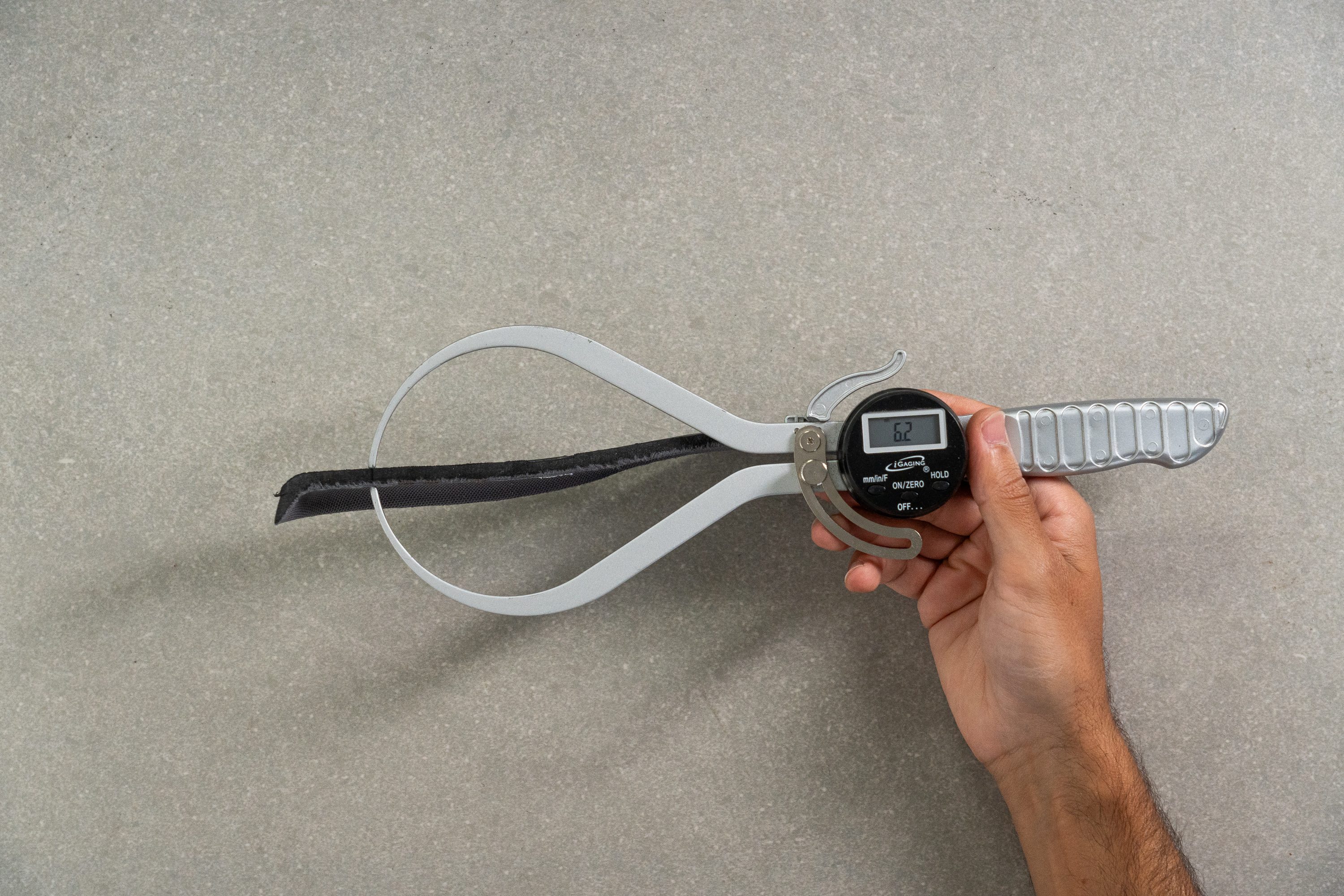
| Cloud | 6.2 mm |
| Average | 6.0 mm |
Stability
Lateral stability test
From our initial assessment of the Cloud's stability, we realized that it is NOT a good option for flat feet and/or overpronation.
There is simply not enough support underfoot or in the upper to prevent the ankle from rolling inwards excessively.
Torsional rigidity
As we bent and twisted the Cloud in our hands, we found it hard to believe that there is a full-length Speedboard plastic plate embedded into the midsole.
It takes very little effort to twist the shoe sideways and so we rated its torsional stiffness as low as 2 out of 5.
In our opinion, the Speedboard doesn't do much for stability but rather, it helps to add a little snap to the toe-offs.
| Cloud | 2 |
| Average | 2.8 |
Heel counter stiffness
Another potential source of stability in a walking shoe is its stiff heel counter. And the On Cloud seems to be doing better in this regard.
Pushing and squeezing this part of the shoe, we felt a good level of resistance but nothing too crazy. Thus, we rated it as 3 out of 5, a solid middle ground.
| Cloud | 3 |
| Average | 2.3 |
Midsole width in the forefoot
Another underwhelming aspect of the On Cloud was its narrower-than-average sole.
This was already felt in our subjective lateral stability test above but we still had to measure the platform itself.
In the widest part of the forefoot, the Cloud is 103.7 mm wide. This is 5.5 mm narrower than the average width as of the moment of writing.
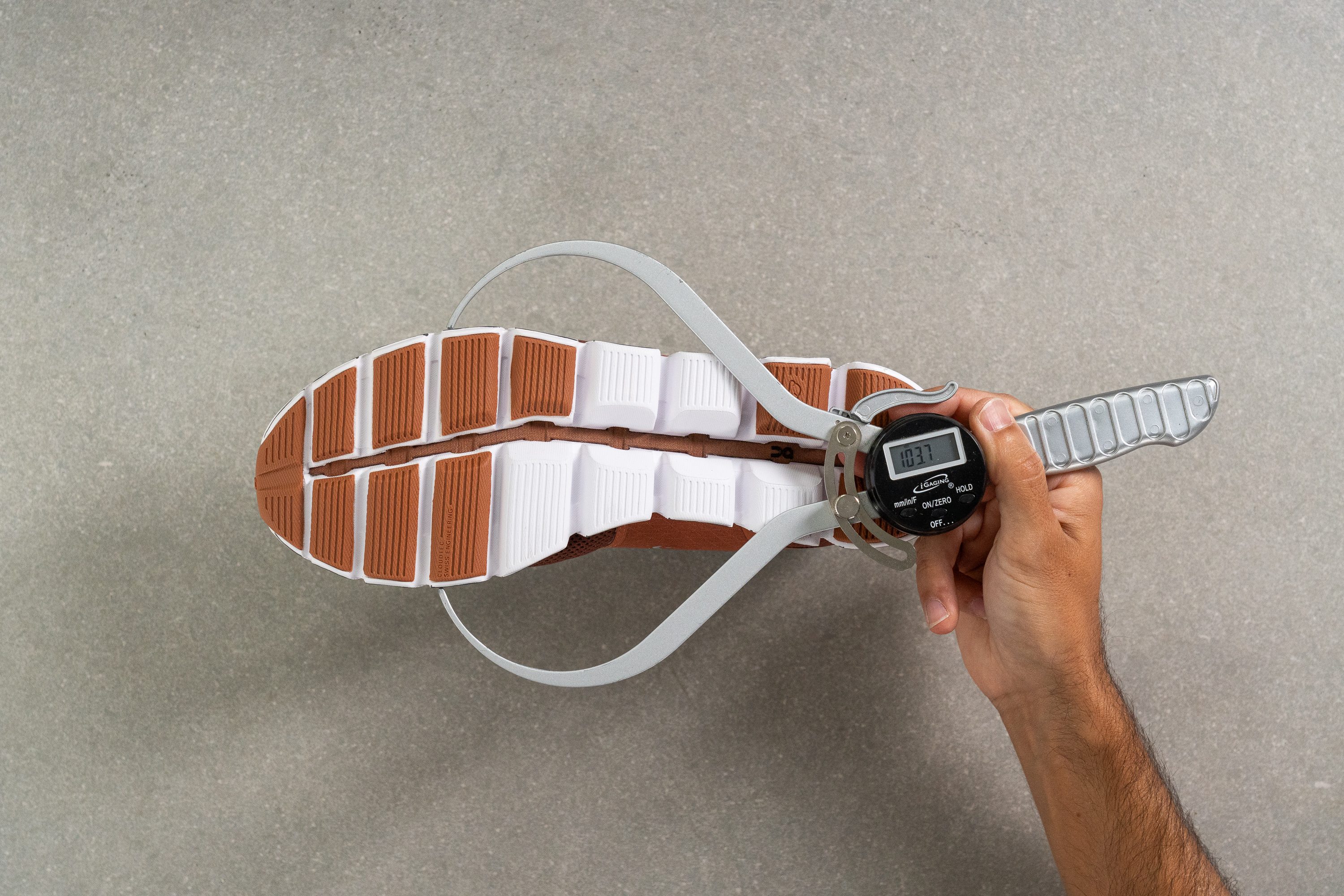
| Cloud | 103.7 mm |
| Average | 111.8 mm |
Midsole width in the heel
The situation gets even worse in the heel. The widest part here measures in at only 76.9 mm. This is a whopping 10 mm narrower than the average!
By far, the On Cloud is the narrowest walking shoe in our lab! If you are used to relying on a wide landing area, we recommend the Cloudnova or the Cloudnova Form instead.
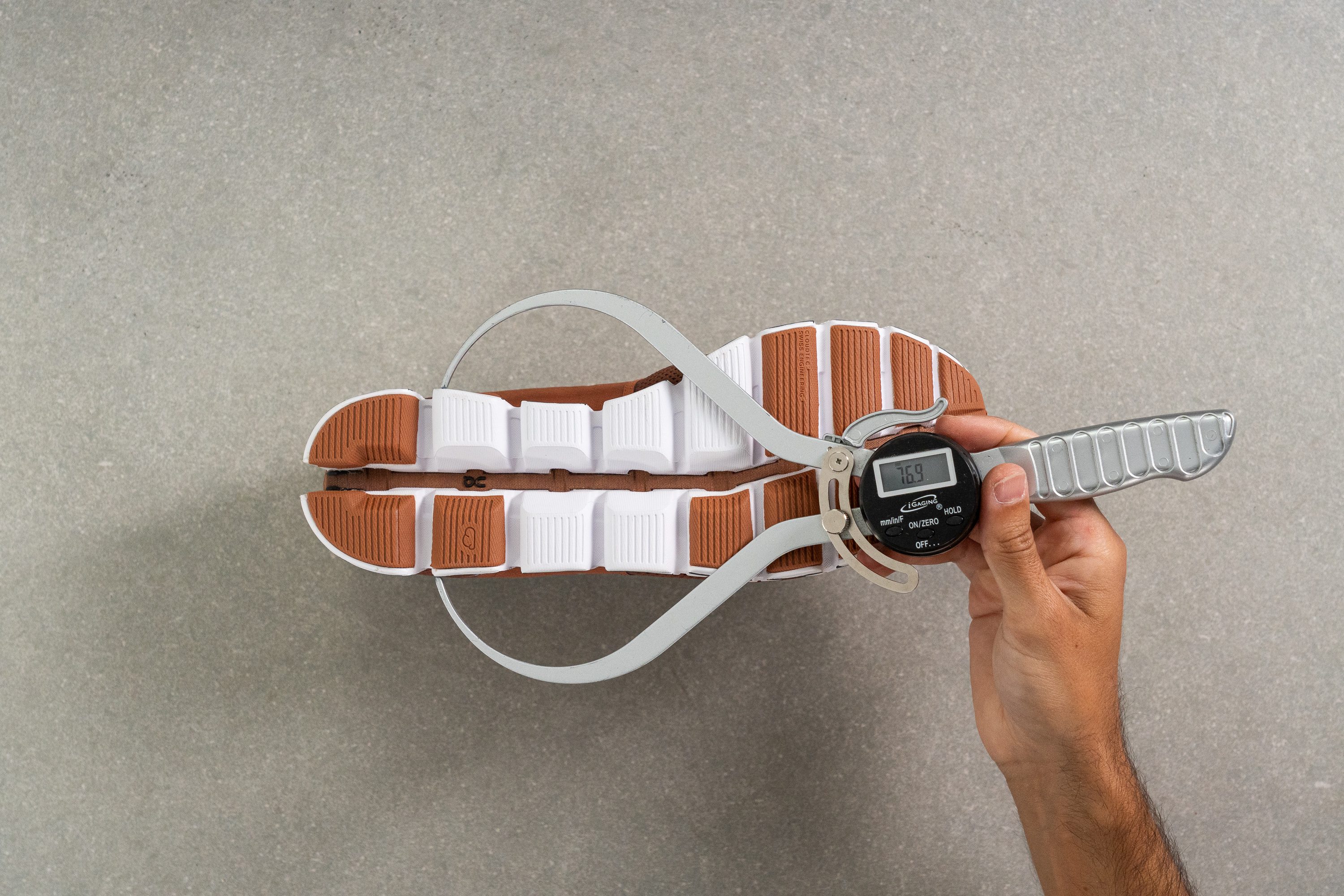
| Cloud | 76.9 mm |
| Average | 90.2 mm |
Flexibility
Stiffness
Want a shoe that bends along with your foot as if you weren't wearing any? Try the Cloud!
It is really hard to find a more flexible shoe without going into the minimalist realm. We measured how much force it takes to bend this On shoe to a 90-degree angle and it only required 9.9N! For reference, the current average is 19N.
This is by far the most flexible walking shoe here in our lab.
| Cloud | 9.9N |
| Average | 20.6N |
Difference in stiffness in cold
Even when exposed to a freezing environment (such as our own freezer) for 20 minutes, the stiffness of the Cloud only bumps up to 14.9N.
This is 50% more flexible than the average! It is even more flexible than most walking shoes in room temperature.
The On Cloud stiffened up by 51.5% in our cold exposure test. As much as it may seem, it wasn't even enough to move it from the very flexible range to the moderately flexible one.
| Cloud | 51.5% |
| Average | 47.5% |
Grip / Traction
Having tested the On Cloud on a variety of surfaces, from slick tiles to hard-packed trails, we found its grip to be okay at best.
It is not the most surefooted experience because the shoe has zero treads and some of its pods have no rubber coverage.
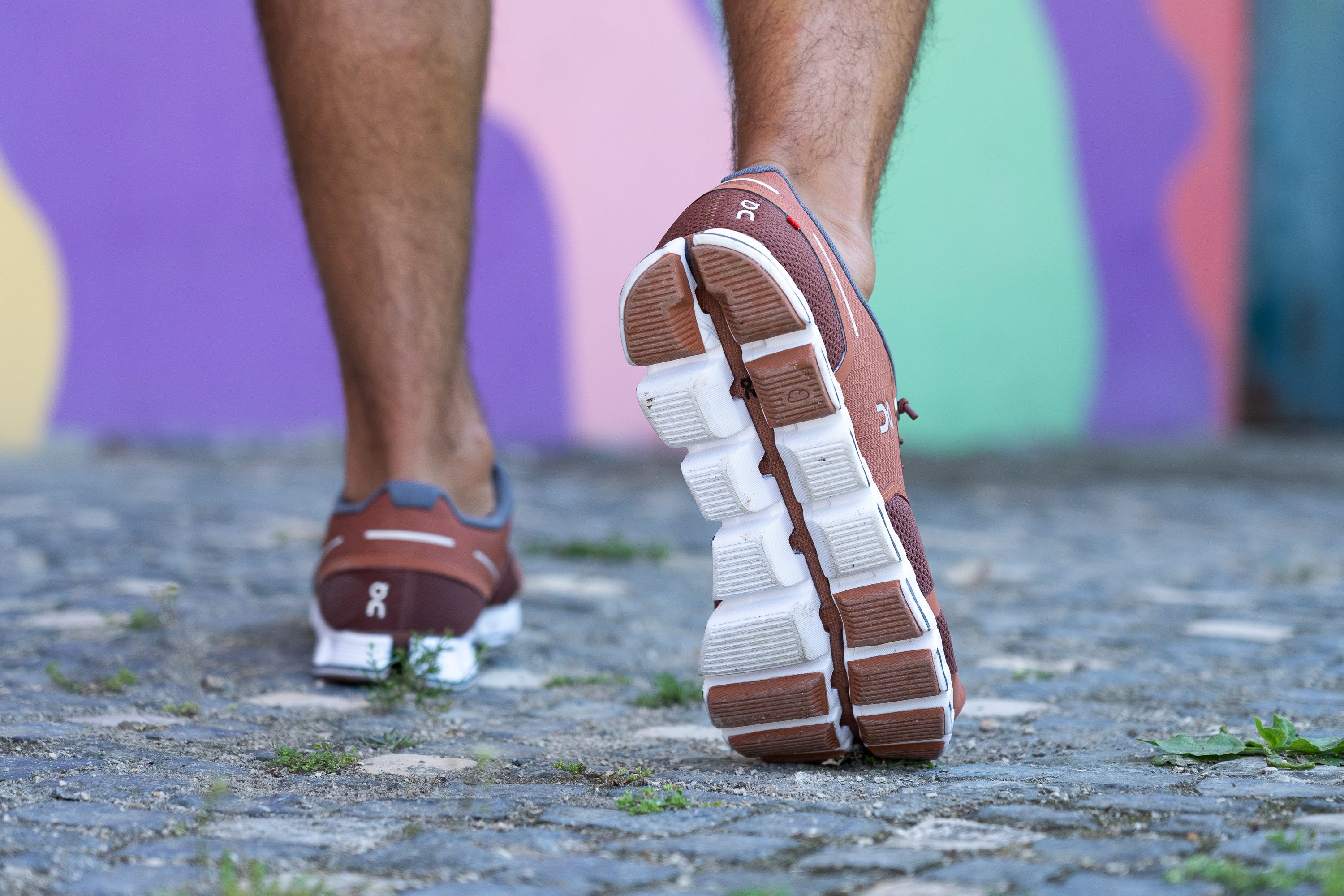
P.S. One thing that really annoys us in nearly every On shoe is the gap in between the pods. It is wide enough to catch pebbles and other debris which then get stuck in the sole.
Size and fit
Toebox width at the widest part
The shoe's narrow platform also made us very much concerned about the upper width. Is it just as narrow?
Measuring the widest part of the toebox, we found that the On Cloud is just average. At 97.9 mm, it is exactly the same as the average of walking shoes.
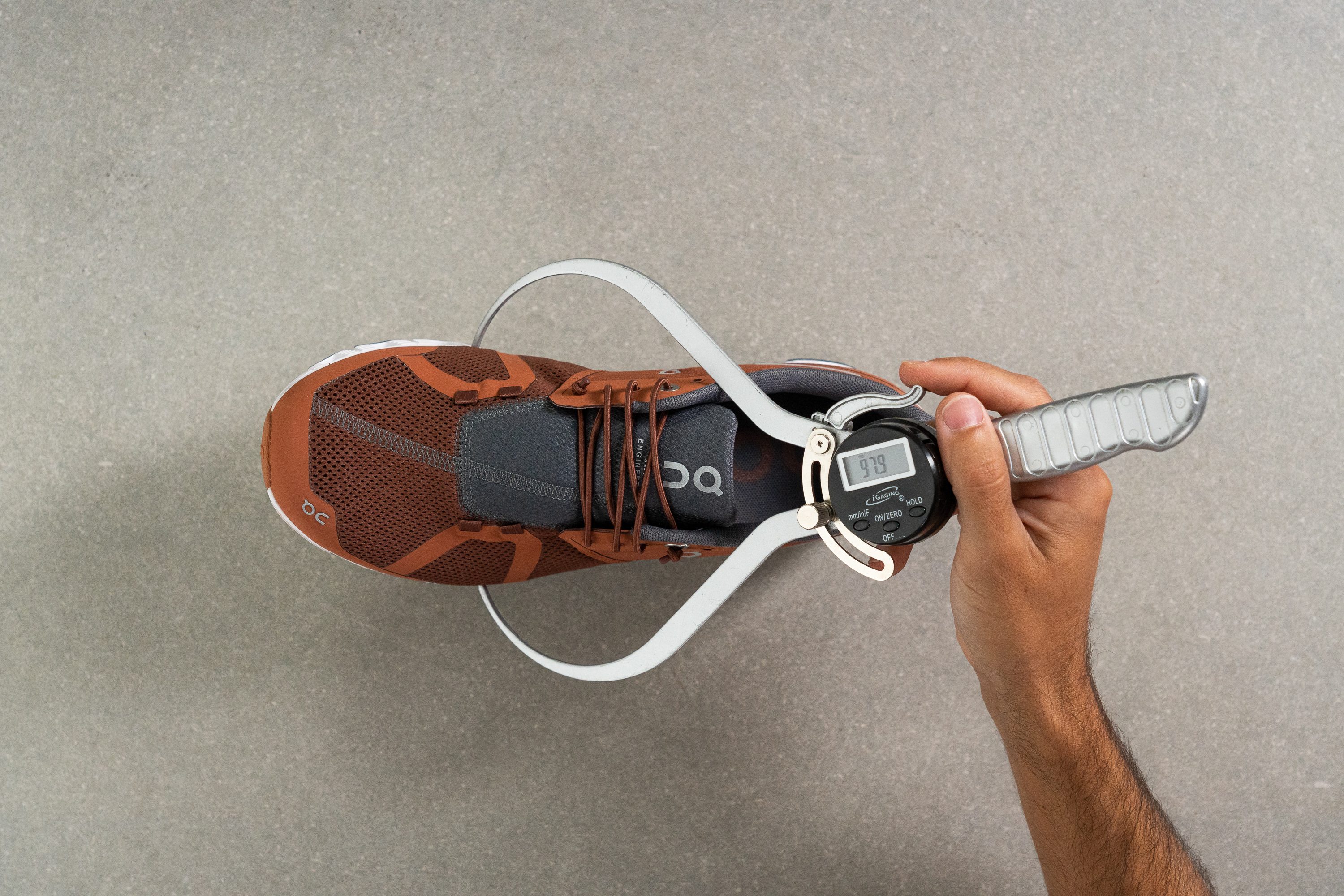
| Cloud | 97.9 mm |
| Average | 99.2 mm |
Toebox width at the big toe
We also made sure that the toebox doesn't get too tapered towards the toes.
Measuring the toebox width around the big toe, we found it to be 80.7 mm, even a tiny bit wider than the average 78.2 mm.
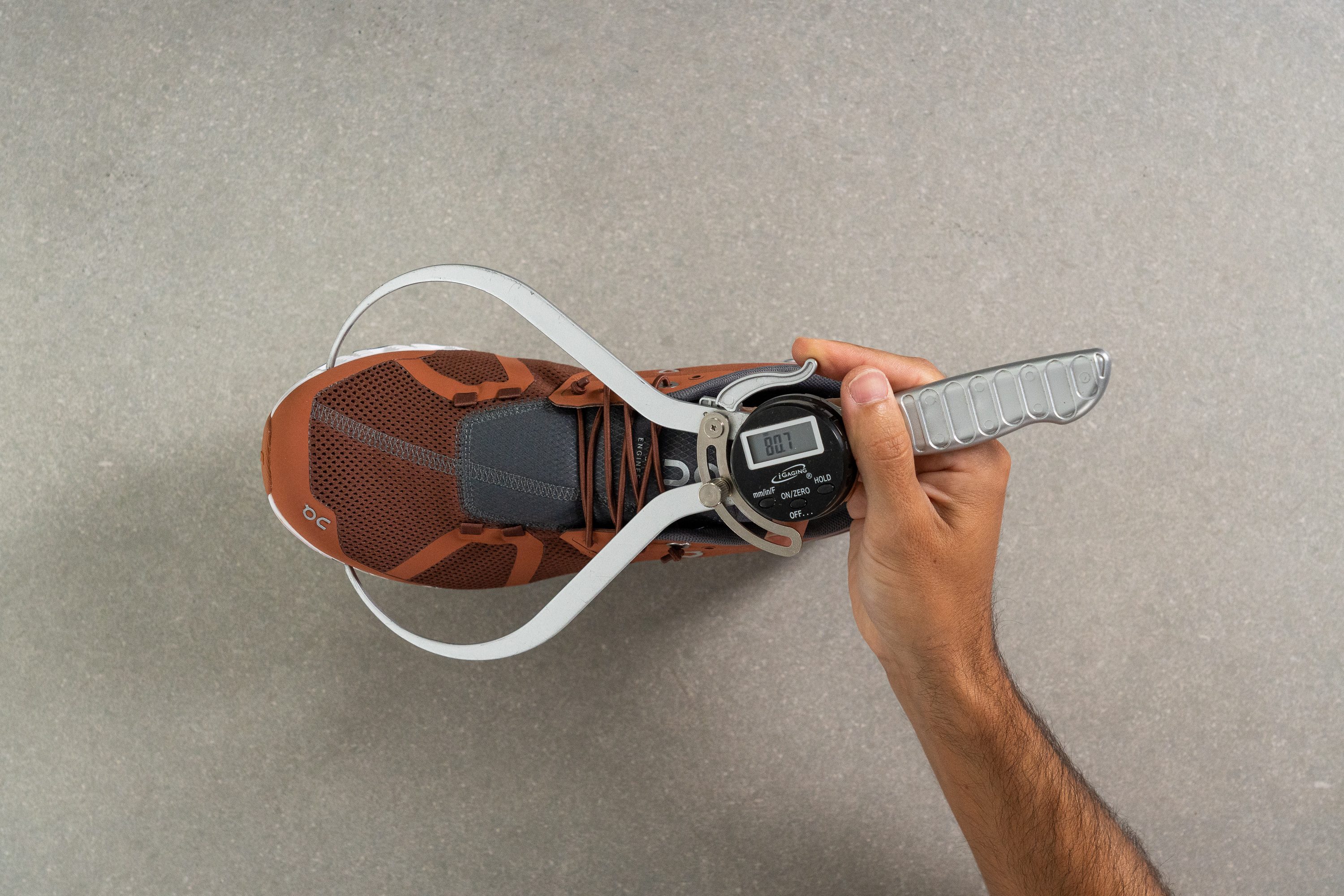
And yet, somehow the overall fit of this shoe felt a little bit narrow. Even the brand itself recommends going half-size up on the On Cloud on their official website.
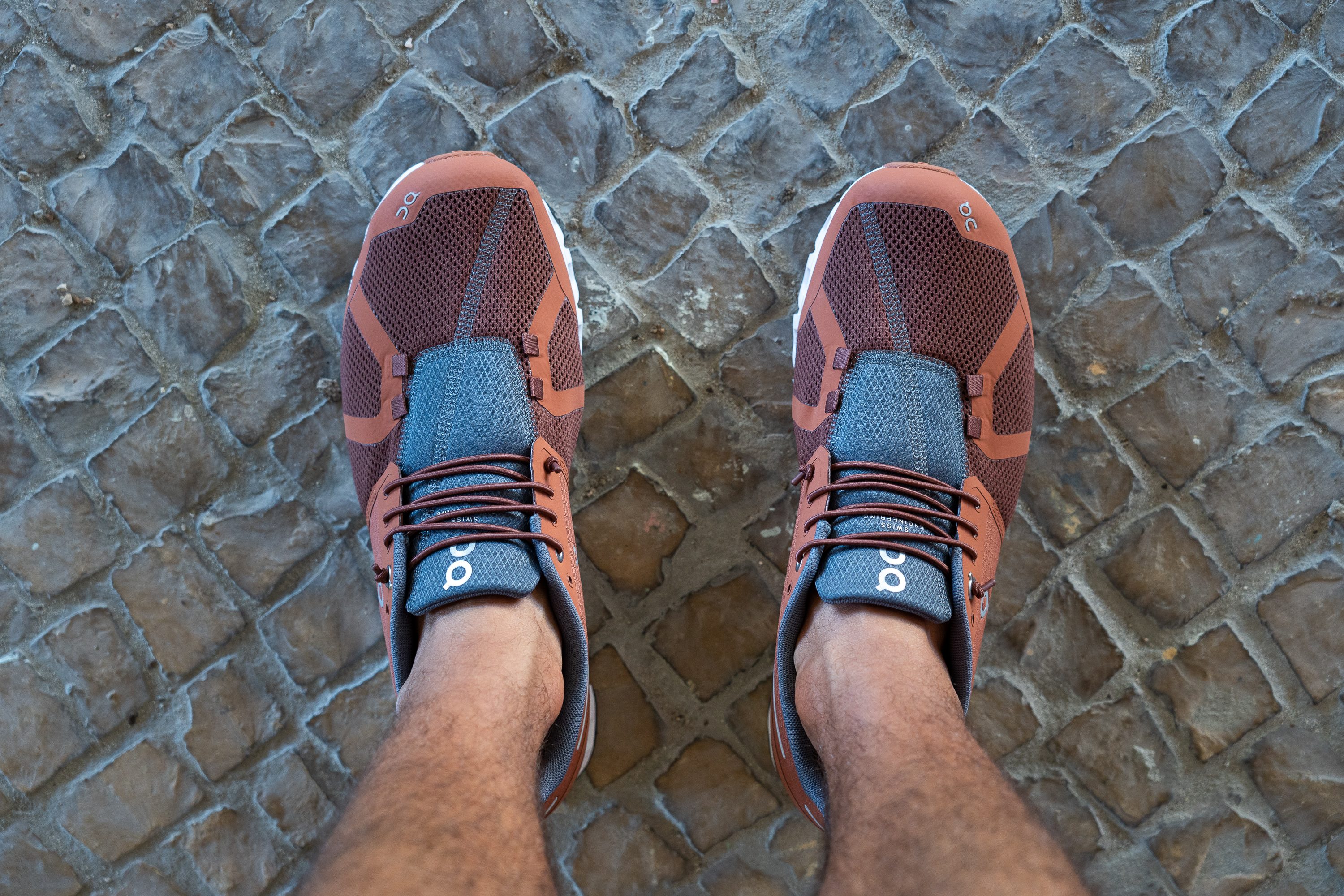
For our medium-width feet, this was not a problem. But if you prefer to have some extra space for splaying the toes or especially if you have wide feet, do go half size up or consider a more spacious walking shoe like the Allbirds Tree Runners.
| Cloud | 80.7 mm |
| Average | 78.6 mm |
Tongue: gusset type
A fully-gusseted tongue played its part very well in this On shoe. The lockdown was excellent and we experienced zero in-shoe movement.
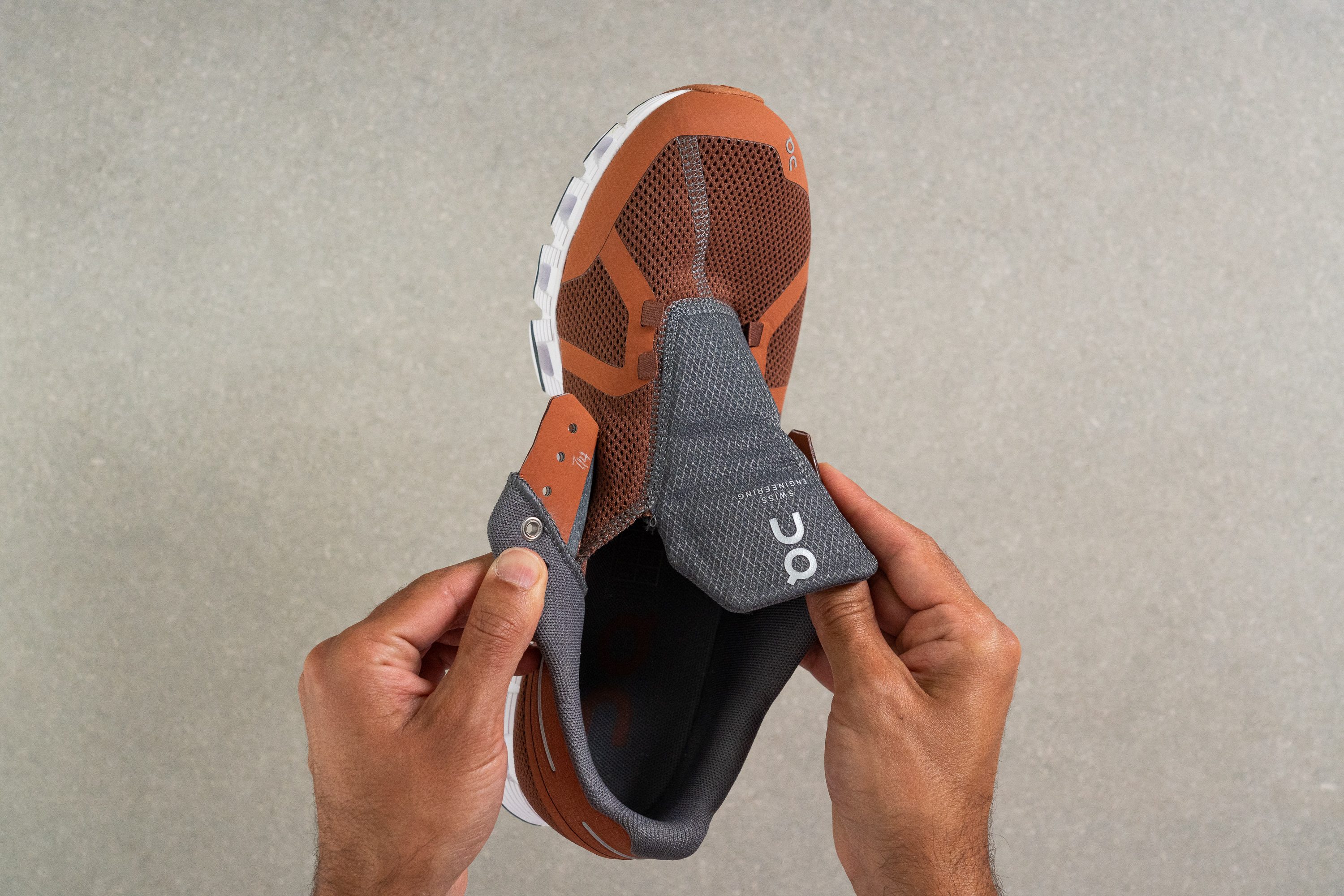
| Cloud | Both sides (full) |
Comfort
Tongue padding
The tongue was comfortable, not too thick yet not too thin. We measured it at 5.3 mm which is even a little thicker than average.
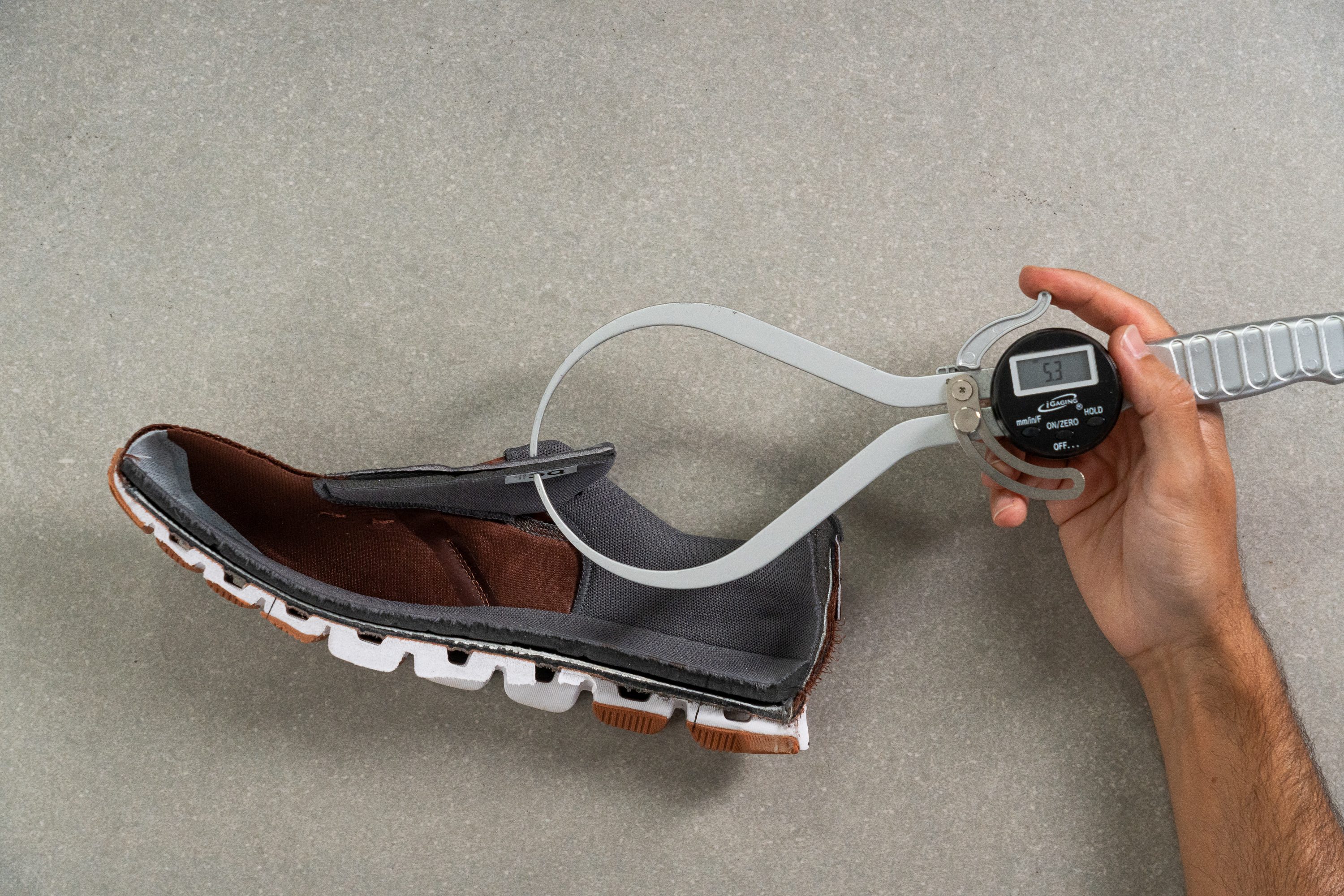
It did a great job protecting our insteps from possible pressure points from the laces.
| Cloud | 5.3 mm |
| Average | 5.2 mm |
Heel tab
There is no heel tab on this On Cloud shoe. But it didn't seem to be a problem to us thanks to the wide shoe opening. It makes the Cloud feel almost like a slip-on.
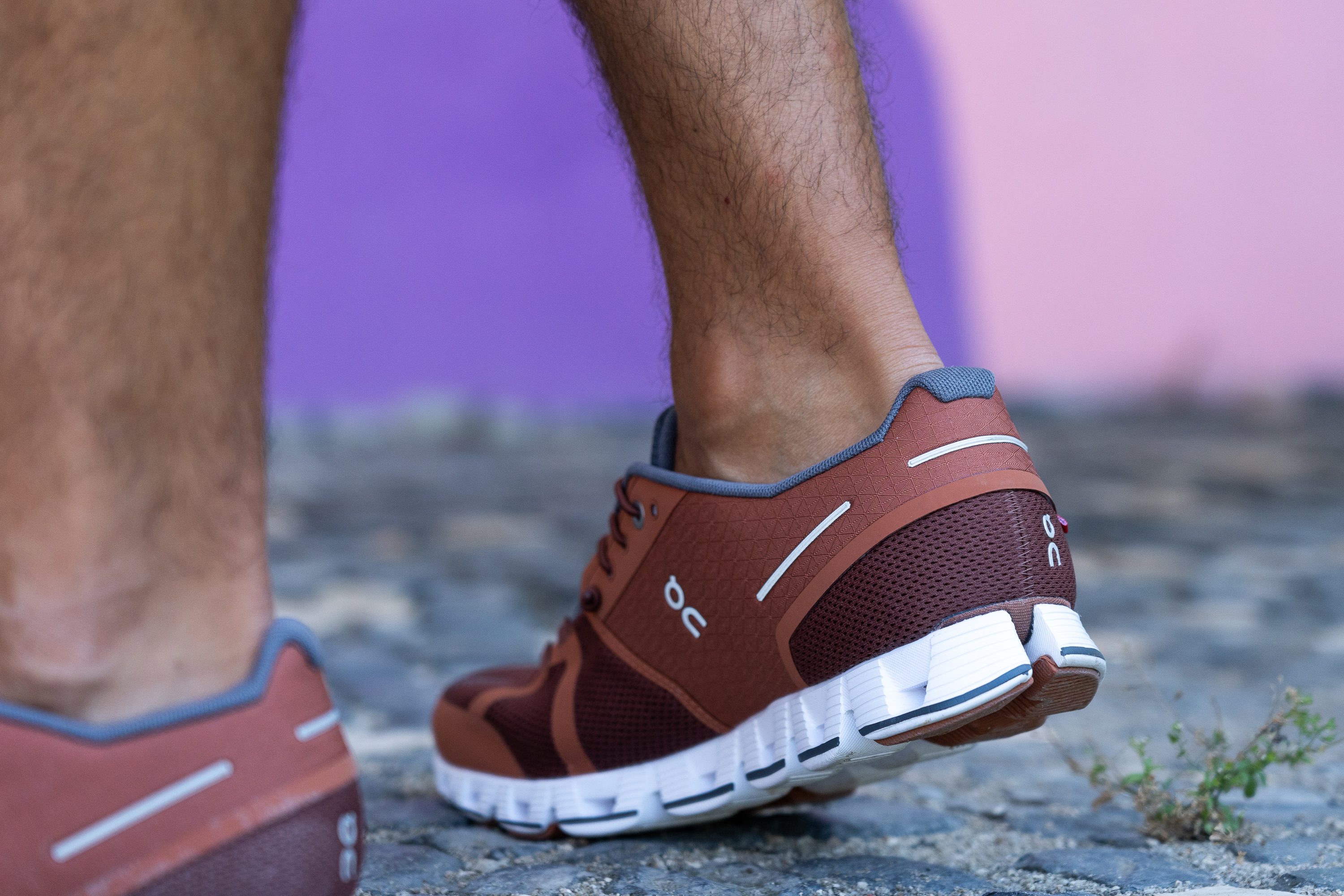
| Cloud | None |
Removable insole
If you need to use a plusher pair of orthotics to compensate for the slightly firm ride of the On Cloud, you can easily do so. The shoe's insole is easily removable.
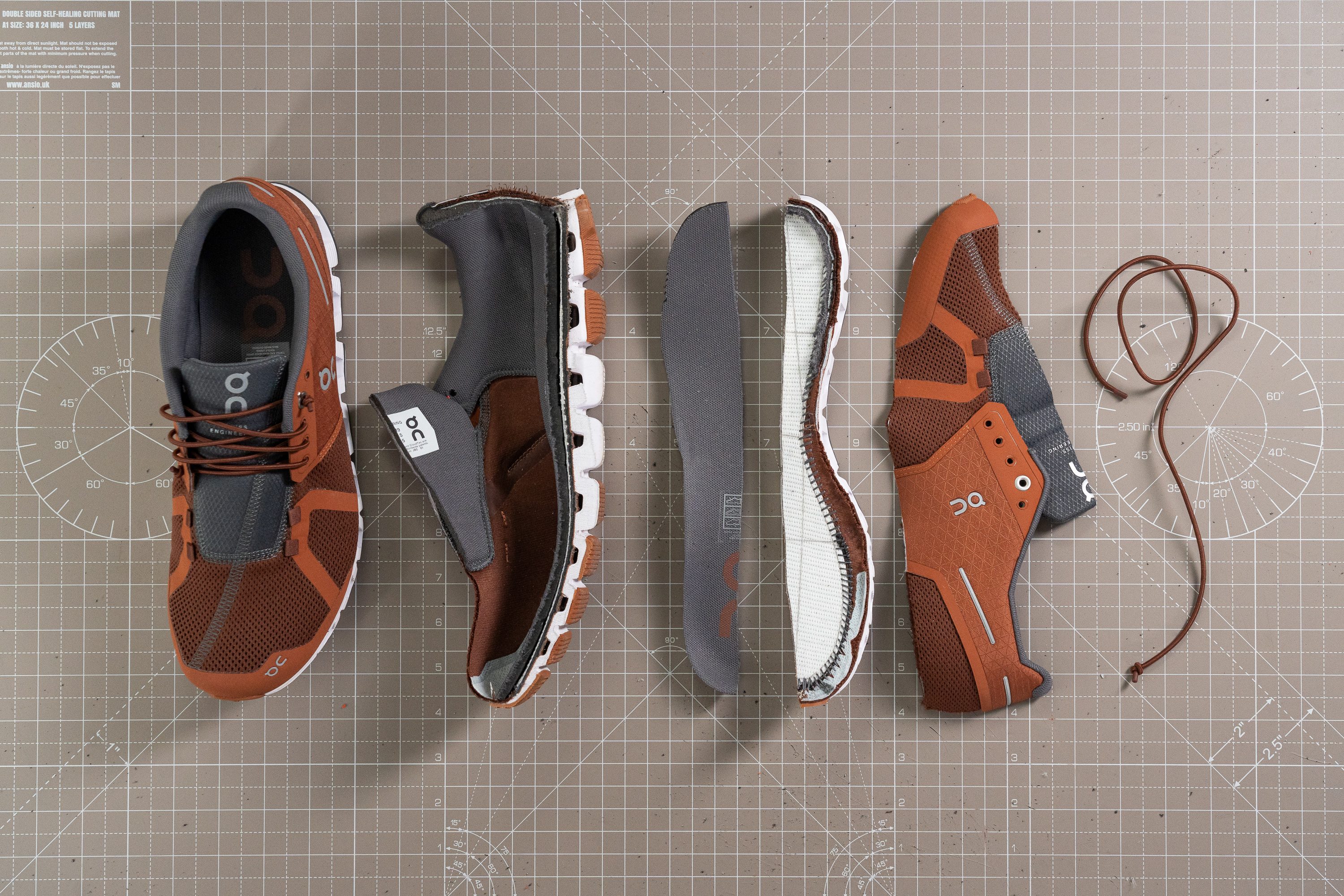
| Cloud | Yes |
Lacing
The On Cloud comes with both elastic and conventional laces. The latter are added to the shoe box.
We preferred the default elastic lacing for two reasons. Firstly, it makes the shoe's fit a little less constricting. Secondly, we found the conventional laces too thin and long, which was rather messy and unsightly.
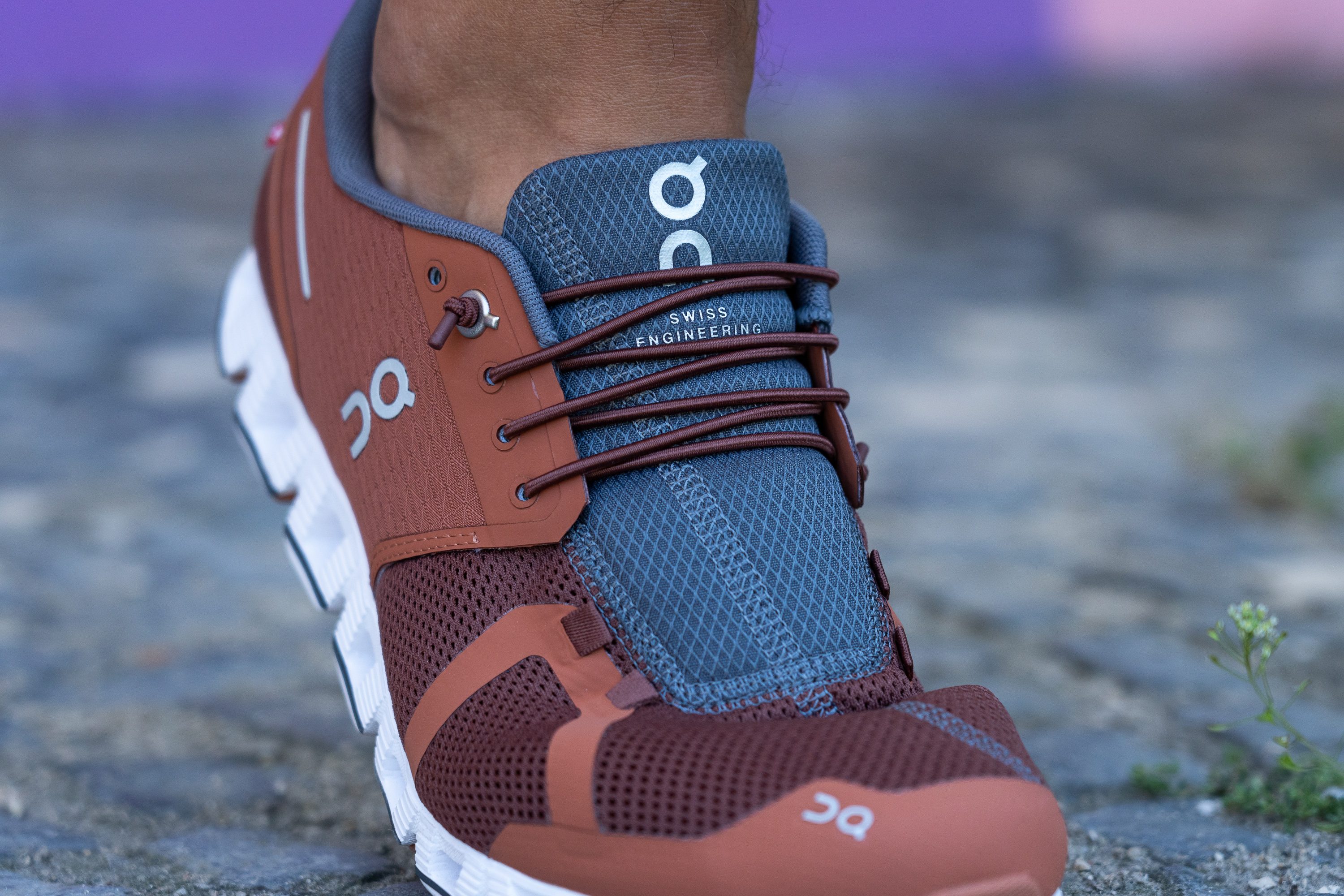
In-shoe comfort
What we appreciate very much about the On Cloud is that its upper design looks very simple and yet provides a ton of comfort.
It has a nice sock-like feel, without a hint of roughness, which allowed us to stay abrasion and blister-free even as we tried wearing it with no socks.
Misc
Reflective elements
Coming back home in the dark hours is made a little safer with the On Cloud. The branding on the back and on the sides is made of reflective material to keep you visible.
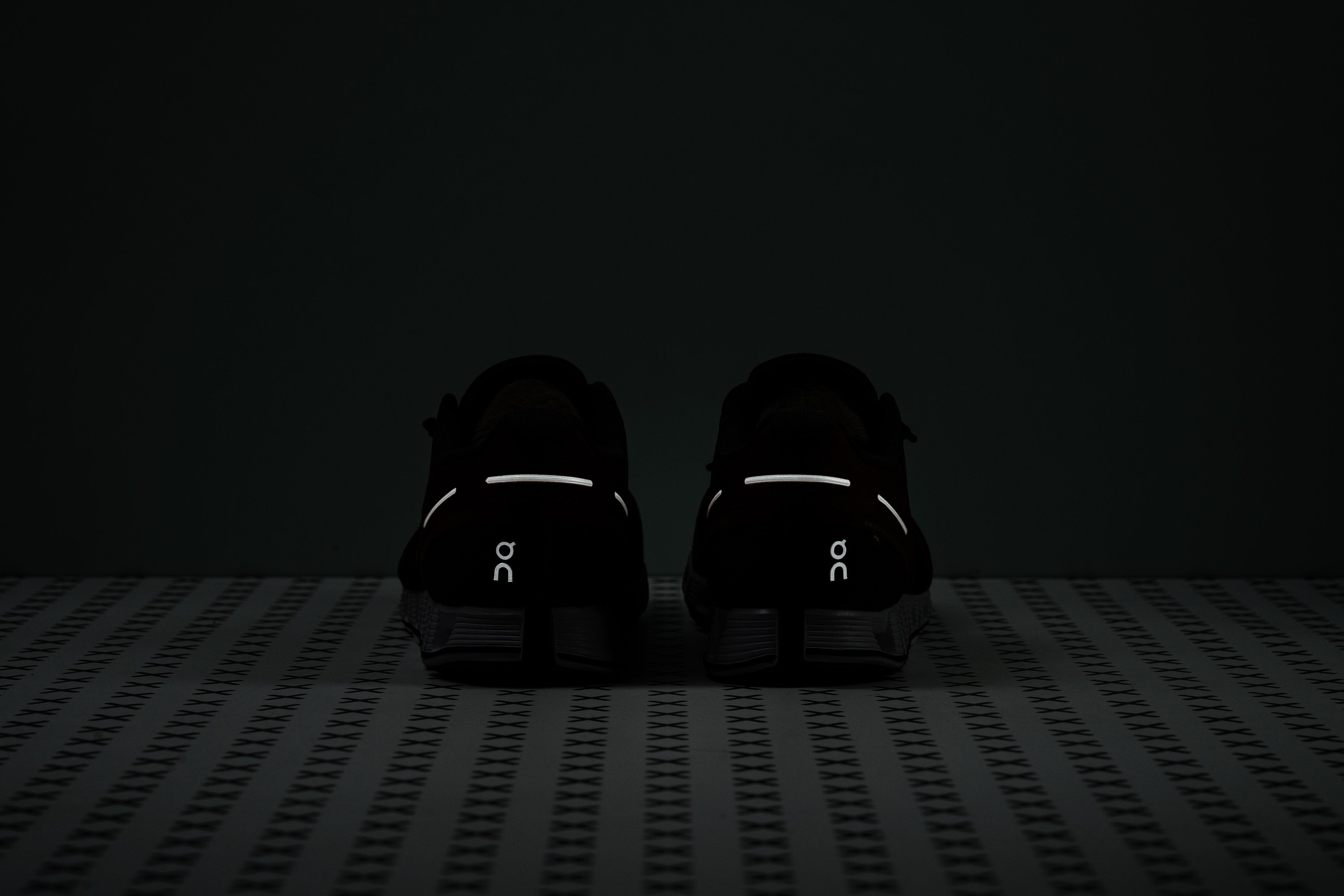
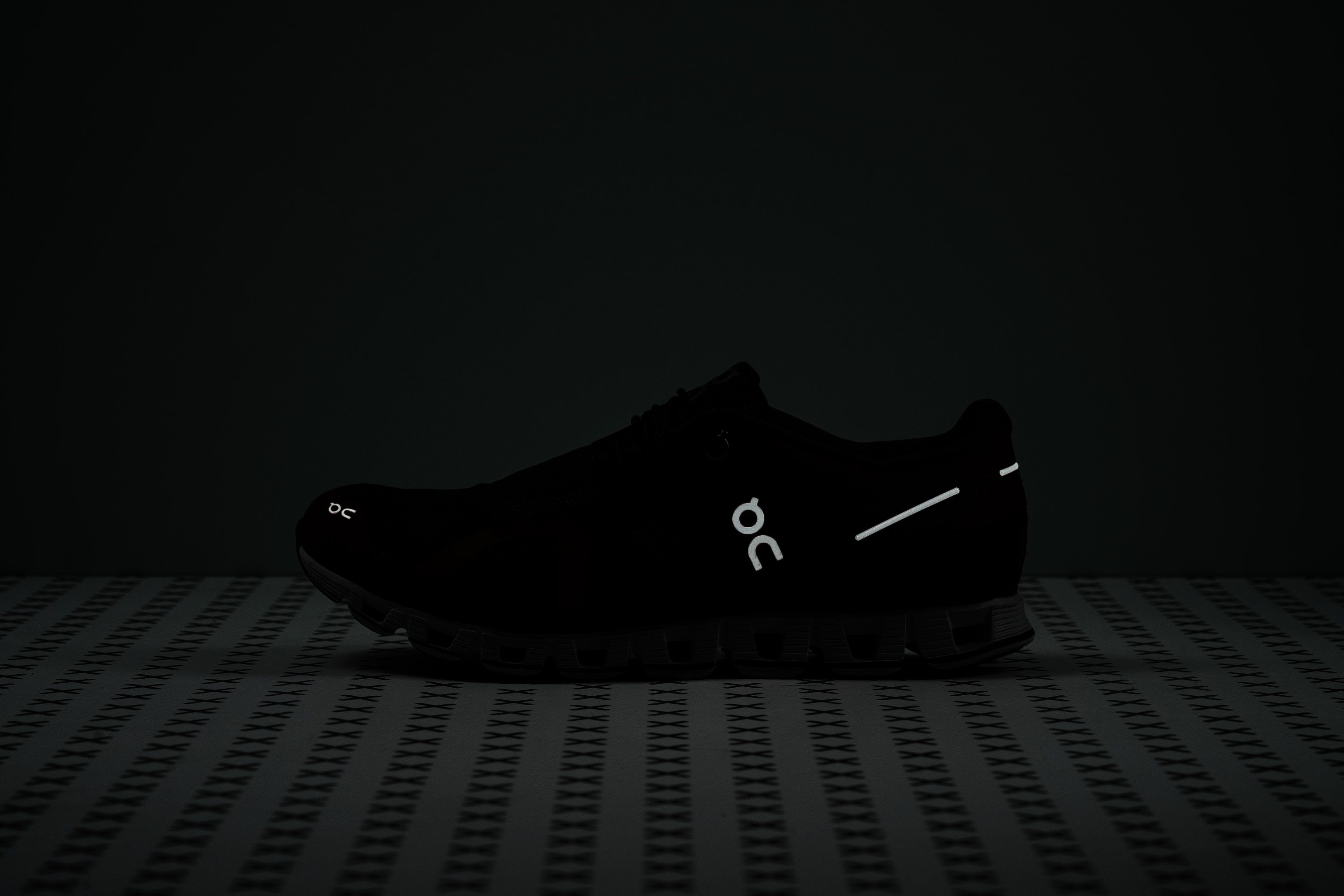
| Cloud | Yes |

